

PhD Admission Guide
Gain admission to your dream school, guide to phd admission.
While some students swear off further education after undergrad, some love the thrill of intellectual discovery and research. For these students, graduate school is a natural choice. Graduate degrees are separated into “professional” and “academic” categories. Professional degrees are JDs and MDs, while academic degrees are PhDs (literally “Doctorates of Philosophy” regardless of what field you actually study).
Whether or not you need to pursue a PhD depends entirely on what career you wish to have. Some require higher education, while many others do not. In this guide we’ll go over how to apply to PhD programs, what they are looking for, and how the application process works. This guide is focused on the US and Canada; Europe has a system which is simultaneously similar and very different.
What PhD Programs Look For
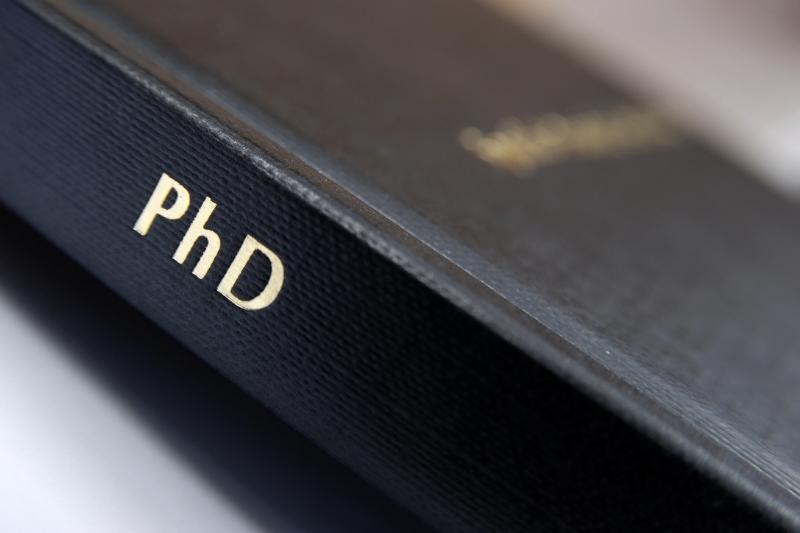
PhD programs want to make sure you are prepared academically for the rigors of the program, and that you have a concrete research goal in mind. PhD programs culminate with each student answering a research question they devise, contributing new knowledge to the world in the process.
Thus these programs seek to evaluate your intellectual ability, research goals, previous research experience, and how you will contribute to their program. To determine this, they ask for the following:
Letters of Recommendation
We’ll go through each of these in turn, and explain what graduate programs are looking for from each.
Your GPA in undergrad is the single most important factor in PhD admissions. If your GPA is too low your application will be dismissed out of hand. While there are no hard limits, we suggest a minimum GPA of 3.5 for serious contention, especially at top schools. If your GPA is below 3.0 then you will likely not get admitted into any PhD programs.
The reason for this is that PhD programs are a lot of work. Being intelligent is necessary, but is far from sufficient alone. Everyone in PhD programs is intelligent, and everyone is also willing to do the work. Your GPA is seen as the primary indicator of your willingness and ability to do academic work to a high standard, and your preparation for the rigors of a PhD program.
Along with your overall GPA, schools request your major GPA. This is your GPA when calculated only using courses in your major. This is usually expected to be higher than your overall GPA. Your major GPA should be over 3.5.
While taking harder courses in undergrad is a great experience, they can also harm your overall GPA. Of course, the best approach is to take very hard classes and do well in them, but this is not always possible. We recommend taking a blend of courses, so you are never overloaded, and able to give each the attention it needs to do well.
Academic Preparation
Your GPA and transcript is also used to judge your academic preparation for the program. You should have a solid grounding in the field, and have taken advanced courses as well. Taking graduate level courses in undergrad can exemplify this.
Some PhD programs also require research languages. This is more common in the social sciences and humanities, but all students will benefit from knowing other languages well enough to do research in them. You should look up language requirements when researching programs to apply to.
The Graduate Record Examinations (GRE) is a standardized test meant for students who intend to apply to graduate programs. Both MA and PhD programs ask for GRE scores. Much like the SAT or ACT in college exams, the test is meant to be a standardized measure of academic preparation and logical skill.
The test consists of six sections. The first is writing, next are two on verbal reasoning, then two on quantitative reasoning, and finally a research or experimental section, meant to test new questions. The entire test is offered on the computer, with one minute breaks after each section, and a ten minute break after the third section. While there is also a paper-based test, almost all testing is now done on a computer. Due to the pandemic, both testing centers and at-home testing are offered. The GRE is a multi-stage test, and how well you do on earlier sections determines the difficulty of later sections and questions.
The verbal sections each consist of 20 questions, to be answered over 30 minutes. The whole is scored on a scale of 130-170. The quantitative section is scored the same, and consists of two 20 question sections, each of which should be completed in 35 minutes. The writing section is scored from 0-6. For this section, you write an essay on a given issue in 30 minutes, and offer a response critiquing a provided argument for 30 minutes.
Your total score from the GRE is given from 130-170. While the exact scores you need to enter graduate school vary, higher is better. In addition, some programs only care about your verbal score, while others only care about your quantitative score. How much weight each program puts on GRE scores varies greatly.
We recommend studying for the GRE for some time before testing. You can take the GRE up to five times per year, but must wait at least 21 days between testing dates. Only scores from the past 5 years will be released or considered by graduate programs.
Curriculum Vitae
This is akin to a resume, but is dissimilar enough that the two cannot be used interchangeably. The purpose of a CV is, like a resume, to detail what you have accomplished academically and in your career. It is far more focused on academics however, and is widely used for academic careers.
We recommend finding a template for a CV online, or asking your college’s advisors for help in creating one. If you already have a resume, then you will easily be able to convert it into a CV.
What admissions officers are looking for in your activities is primarily signs of research. This should be in whatever field you intend to pursue a PhD in. Publications are also incredibly valuable. All of academia runs on publication, and getting an early start helps your career at every step.
You should try to do research while still in undergrad. What this looks like depends entirely on what field you are pursuing. While the research does not have to exactly line up with what you wish to pursue, it should teach you skills which are cross applicable. Higher level academic research has its own set of methods and language which must be learned, and students who are already familiar with the forms and structures of research have a leg up in graduate school.
Publication is not required, but is nice to see. If you have completed a master’s degree, you should have some publication history; of your thesis if nothing else. Speak with your academic advisors about getting your work published.
Each graduate school you apply to will ask for an essay. You will be able to use the same basic form for each, but will need to edit it to be about the particular program you are applying to. Most schools only require a single essay, although some programs ask for a second on diversity.
The purpose of this essay is to explain your research interests, what you have studied, your intended area of specialization, and what your focus will be on. Every PhD student is asking and trying to answer a very specific research question. This question forms the basis of their dissertation, and will be the focus of your life for several years if you are accepted.
Thus the essay is the most important part of your application. Your grades and GRE are required to see if you are academically ready for graduate school, but the essay lets readers know if you are a match for their program, and serious about your research.
Your essay should begin by stating which program you are applying to, and why. Next, go through your previous academic experience in the field, both coursework and research. You don’t have to go through every class, but cover the ones most relevant to your desired research topic.
You should discuss any prior research you have done in the field. If you completed a thesis for your undergraduate degree or a master’s program, cover that here. If you have any publication credits, cover those as well. This should relate directly to the field you are trying to enter. If you wish to pursue lab work, discuss your previous experiences; if instead you are pursuing field work, talk about your experiences there.
Next you should talk about the research you specifically wish to pursue through a PhD. You don’t need to have an exact research question worked out, but it is helpful to have some idea; you should at least know the subfield you will be focusing on. The more specific you are, the better. Having some discussion of methodology can be nice, but is not always necessary.
If there are any ongoing research projects ongoing at the school you wish to work on, cover those next. You should discuss how these projects specifically relate to your own research interests. Finally, you should talk about which professors you wish to work with. Professors take on graduate students to advise, and you ideally want one with a specialization at least tangentially related to your field of interest. The more closely related the professor’s studies are to your own, the better.
You will be able to leave much of this essay the same for each school you apply to, changing only the name of the program, the research projects, and the professors you wish to work with.
This essay should be a page and a half to two pages long, single spaced. You should go into sufficient detail for those reading it to understand the research you want to pursue. These essays are reviewed by the faculty who run the department, and they make the admissions decisions for PhD programs. There are many more applicants than there are spaces, and admissions rates are low. The more specific and detailed you are in this essay, the better the faculty will understand your research aims, and the better your chances will be.
Diversity Statements
Not all programs ask for these, but you will likely be able to reuse the same essay for those that do. The purpose of the diversity statement is to see what unique points of view and experiences you will be able to contribute to the program. PhDs are about learning, and the more viewpoints and ideas within a program, the broader the experience will be.
If you are a member of an underrepresented group, an immigrant, come from an underprivileged background, or come from an area which is generally underrepresented, we suggest discussing that in this essay. You should not write an essay about your interactions with members of these groups, or a study abroad experience.
Above all, this essay should be authentic to you and your experience. The goal is to show how your background has shaped you as a person, and how it impacts your view of the world.
As with college applications, letters of recommendation are required for PhD admissions. These tell admissions committees who you are as a student and researcher, and give their opinion on how you will perform when doing graduate level work. Academic fields are small and often insular, and the professors writing your letters will often be known by those reading them, either by reputation or in person.
Programs ask for two to four letters. These should primarily come from professors who know you and your work well. If you had a thesis advisor, they should write one of your letters. If you’ve worked doing research for some time, then a mentor or lab director can also be a good source of a letter, even if they haven’t taught you in class. Letters should not come from non-academic sources, unless you have worked professionally in that field.
While you have the option to read the letters that are written for you, you should always waive that right. If you don’t trust your writers to craft good letters for you, then you shouldn’t be asking them for letters. Asking to see letters is considered a sign of lack of trust, and is gauche. Many professors will decline to write letters if you insist on seeing them.
You should ask for letters well in advance of when they are due; we recommend at least a month or two. If you are asking non-tenured faculty for a letter, more leeway is recommended, as they have more on their plate, and are often more stressed. You may need to send a reminder as deadlines approach. You should also share a copy of your essay with letter writers, so they know exactly what subfield you intend to pursue, and can discuss this in their letters.
Finally, you should be aware of politics when asking for letters. Some professors do not like each other at all. If you are seen as the protege of a professor who others detest, this can impact your admissions chances. Always discuss which schools and programs you are applying to with your letter writers. You should also discuss your choices of writers with an advisor (for example a thesis advisor) familiar with the field. Academic politics are incredibly petty, but if you plan to pursue a PhD you need to be aware of the game, and how it is played.

If your application passes the first review, you will be invited to do an interview. This will be with faculty in the program you are applying to. This is to further get to know you, and to understand your research objectives.
You should be able to clearly explain what you want to research, and how this program will help you do so. The people talking to you will all be familiar with the field, though not necessarily your specific subfield. They are looking for your ability to communicate and explain your view. Be prepared to answer some questions about the specifics of your goals, though it’s ok if you don’t know everything right now.
Interviews are generally in person, though due to the pandemic, virtual interviews have become more common. This is also your chance to ask any questions you have about the program you were unable to find answers to online. You can practice for this interview with an advisor or mentor; many schools have career centers which hold mock grad school interviews as well.
When and How to Apply to Grad School
There is no unified platform for PhD applications. Instead you must apply to each program individually, through the school’s website. This will mean filling out information multiple times, but they fortunately don’t ask for much. Once you have your documents in order, the rest is personal, demographic, and contact information.
You will need to pay to have your GRE scores sent to each school you apply to. Even though this is all electronic, they still charge dearly for it.
Applications are generally due in December or January, with interviews held over the next few months. Applications open in September or October. We recommend getting your applications in before the due date, though most programs don’t use rolling admissions. Each program sets their own deadlines, so you should track when each of your applications is due carefully to make sure nothing gets overlooked.
Paying for Grad School
PhD programs are for the most part fully funded. This means you will not be paying tuition, and will also get funding to live on. This funding is generally contingent on academic standing, and doing work TAing, teaching, or on ongoing research projects (or most commonly, all of the above). Many grad students also work full or part time to support themselves.
While you will not need to take on additional debt to pay for graduate school, you will not be well paid either. While the exact amount graduate students receive varies by school and program, it is generally in the range of $20-30,000 annually. This goes towards food, housing, and supplies.
While you are in a PhD program, you will not have to make payments on any government loans you took out to pay for undergrad, though they will continue to accrue interest. Making payments on them during grad school is difficult, but will greatly cut down on the amount you need to pay back later.
There are also outside scholarships available to help pay for graduate studies. While the amounts offered by these vary, most are small. They can help greatly with paying for the necessities however, and applying to them is usually worth the time investment.
Grad School Admission FAQ
Now we’ll answer some of the most common questions about applying to PhD programs.
Can older students apply?
Yes. Many professionals return to school for a PhD long out of undergrad. We suggest taking some courses at a local university in the field you plan on entering before you do this however. Academic research advances quickly, and this will familiarize you with the latest developments. Further, this will introduce you to professors who can provide you with letters of recommendation.
What are my odds of acceptance?
This depends on both your field and program. Generally, however, it is quite difficult to gain admissions to a PhD program, and admission rates hover around 10%. Only the best students get accepted, and this is even more the case at the top schools and programs.
When should I start thinking about applications?
When you choose your major, you should decide what level you want to reach within that field. Some majors lend themselves to PhDs if you want to work in that field, while others allow employment at various levels.
Where should I apply?
You should find programs with professors who are dedicated to your particular subfield. A prestigious institution which does not focus on your area is far less useful, regardless of how famous its name is. You are looking for someone who will be able to advise you, and help you perform worthwhile research. Further, professors are looking for students studying fields similar to their own when they admit graduate students.
How long are PhD programs?
Generally programs last 4-5 years, though this can vary based on field. The exact structure of the programs also varies a lot based on field and program.

Ivy Scholars is the leading educational consultant in Sugar Land, Texas, providing admissions coaching, test prep, and more to help students enroll at top tier schools.

Get In Touch
Call us now: (281) 215-5148
Houston: 4265 San Felipe St, Suite 1100, Houston, TX 77027
Get Started
Subscribe for updates, © all rights reserved.


- Youth Program
- Wharton Online
How the PhD Program Works
Program Overview
Completing your doctorate at Wharton requires 5 years of full-time study. The first 2 years in the program prepare you for admission to candidacy by taking courses, qualifying exams, and starting research projects. In the last few years, you are primarily conducting research full-time including writing and defending your doctoral dissertation.
Admission to candidacy.
You begin by taking courses required for your program of study. All programs requires a preliminary exam, which may be either oral or written.
Some programs may have further requirements, such as an additional exam or research paper. If you enter with a master’s degree or other transfer credit, you may satisfy the formal course requirements more quickly.
Beginning the Wharton PhD Curriculum How the first two years of the Wharton program helped students discover their interests, learn the tools of the profession, and fuel their passion for teaching.
The Doctoral Dissertation
Upon successful completion of coursework and passing a preliminary examination, you are admitted to candidacy for the dissertation phase of your studies.
Your doctoral dissertation should contain original research that meets standards for published scholarship in your field. You are expected to be an expert in the topic you choose to research.
You are admitted to candidacy for the dissertation phase of your studies upon successful completion of coursework and passing a preliminary examination, but you can start thinking about and working on research of relevance at any time.
The dissertation process culminates with a “defense,” in which you defend the proposal orally before your dissertation committee.
While working on your dissertation, you interact extensively with Wharton faculty. Together with interested faculty, you create your own research community that includes your dissertation advisor and dissertation committee.
Policies and Procedures
Get more detailed explanation of course requirements, academic standards, the Teacher Development Program, time limits, and dissertation procedures and requirements.
Sample Program Sequence
Years 1 & 2.
Coursework Examination Research Papers Research Activities Field-Specific Requirements
Directed Reading & Research Admission to Candidacy Formulation of Research Topic
Years 4 & 5
Continued Research Oral Examination Dissertation
Hear From Our Doctoral Community
Conducting ground-breaking research at wharton, how wharton makes it easy to be successful, faculty expertise in housing economics attracted this phd student to wharton.
- Future Students
- Current Students
- Faculty/Staff

Admissions & Aid
- Admissions Home
- Application Requirements
- Financing Options
- Diversity Profile

You are here
Application requirements for all doctoral programs (phd).
All of our doctoral programs are designed to develop outstanding educational researchers who have a deep understanding of the scientific, practical and policy issues they study. All require full-time study, and we promise five years of full-time financial support for every student we admit. Our doctoral programs are small, typically ranging from about 25 to 35 new students a year. The small size of our doctoral cohorts creates big educational advantages for students: the classes are almost always small, students receive individualized attention from their advisors, and they have many opportunities to develop close collegial relationships with fellow students.
It is extremely important to demonstrate in your statement of purpose that your interests converge closely with the current research of faculty who work in the program to which you are applying. Other doctoral applicants will certainly do this, and if you don't, you will forfeit an important competitive advantage to them.
If you wish to contact faculty, please read our Which Degree Which Program article, by Professor Eamonn Callan, which outlines the appropriate process for contacting faculty with whom you share research interests.
- Program website: Degrees and Programs/PhD
- Length of Program: 5 years (average length)
- Tuition: fellowship/assistantship salary and tuition guaranteed for first five years of the program (autumn, winter and spring quarters) for all students, including international students. Funding includes two summers.
Application Requirements:
Application form.
Complete and submit Stanford's graduate online application .
Application Fee
The application fee is $125 , is non-refundable, and must be received by the application deadline.
Application Fee Waivers
Stanford offers three types of application fee waivers for which GSE applicants may apply and be considered:
- GRE Fee Reduction Certificate-Based Waiver
- Diversity Program Participation-Based Waiver
- School-Based Waiver
Please visit the Stanford Graduate Diversity website for instructions, deadlines, and the fee waiver application form.
Statement of Purpose
A Statement of Purpose is required. Your statement should be typed, single-spaced and should be between one to two pages . Describe succinctly your reasons for applying to the proposed program, your preparation for this field of study, and why our program is a good fit for you, your future career plans, and other aspects of your background as well as interests which may aid the admissions committee in evaluating your aptitude and motivation for graduate study. You may indicate potential faculty mentors as part of your study and research interests. Be sure to keep a copy for your records. What's a Good Statement of Purpose?
A resume or CV is required of all applicants, depending on which document is most appropriate for your background. There is no page limit for resumes or CVs, though we typically see resumes of one page in length. Please upload your resume or CV in the online application.
Three (3) Letters of Recommendation
Applicants are required to submit three letters of recommendation . In the online application, you will be asked to identify your recommenders and their email addresses. Please notify your recommenders that they will receive an email prompt to submit their recommendation online. You can submit your request for letters of recommendation through the system without submitting the entire online application. Stanford GSE only accepts online recommendations through the application system ; Stanford GSE cannot accept mailed, emailed or faxed recommendations.
Recommendations should be written by people who have supervised you in an academic, employment, or community service setting. We very strongly recommend that at least one of these letters be from a university professor familiar with your academic work. Your recommendations should directly address your suitability for admission to a graduate program at Stanford GSE.
It is the applicant's responsibility to ensure that all three letters of recommendation are submitted through the system by the application deadline , so please work closely with your recommenders to remind them of the deadline.
College and University Transcripts
Transcripts are required from every college and university you have attended for at least one academic year as a full-time student. When submitting your online application, transcripts should be uploaded to the application as a scanned copy or PDF ; this is sufficient for the application review process. Please refrain from sending a secured PDF/transcript with a digital signature as our system cannot upload these properly. The best way to ensure we receive an upload-able document is for you to print out the secured transcript, scan it, and upload the scanned copy (not to exceed 10MB) as a PDF.
If you earned a degree at the institution from which you are submitting a transcript, please ensure that the degree conferral date and the degree conferred is clearly visible on the document. If you are currently enrolled in a degree program and will not have earned the respective degree by the time of submitting your GSE application, you should submit your most recent in-progress transcript from your institution.
Only if admitted will we contact you with instructions on sending two copies of your official transcripts to our office. We cannot accept mailed, emailed or faxed copies of your transcripts during the application process. Please note: the instructions for sending transcripts on the online application and on the general Stanford Graduate Admissions Office website differ from this Stanford GSE requirement.
Concerning course work completed in a study abroad program
If the coursework and grades are reflected on the transcript of your home institution, you do not need to submit original transcripts from the study abroad institution.
Concerning foreign institutions
If your institution provides a transcript in a language other than English, we require that you submit a translation of the transcript that is either provided by the institution or a certified translator. Translations must be literal and complete versions of the original records.
If your transcript does not include your degree conferral date and the degree conferred , please submit a scanned copy of your diploma, a conferral statement, or a conferral document in addition to your transcript . If you are currently enrolled in a degree program and will not have earned the respective degree by the time of submitting your GSE application, you should submit your most recent in-progress transcript from your institution.
Stanford University requires the Test of English as a Foreign Language (TOEFL) from all applicants whose native language is not English. The GSE requires a minimum TOEFL score of 250 for the computer-based test, 600 for the paper-based test or 100 for the internet-based test in order to be considered for admission. The Test of Written English (TWE) portion of the TOEFL is not required. Applicants who have completed a four-year bachelor's degree or a two-year master's program (or its equivalent) in the U.S. or at an institution where English is the main language of instruction are not required to take the TOEFL. For more information on TOEFL requirements, please refer to the Required Exams page on the main Stanford Graduate Admissions website. You may register for the TOEFL test directly at the ETS website .
TOEFL Dates and Deadlines
PhD applicants who are required to take the TOEFL should plan to take the internet-based TOEFL test and have official TOEFL scores sent electronically to Stanford at institution code 4704 (department code does not matter) no later than November 1 . This will give your official TOEFL scores time to be sent from ETS and be received by our system in time for the December 1 deadline. PhD applicants to Knight-Hennessy Scholars should plan to take the internet-based TOEFL test no later than October 16 so your scores can be received by our system in time for the November 16 KHS GSE deadline. Please note that the TOEFL may be taken no earlier than 18 months prior to the application deadline.
Does Stanford accept tests other than TOEFL?
No. We accept only TOEFL scores; we do not accept IELTS or other test scores.
Contact Information
Admissions: [email protected]
- Financial Aid
- Current Student Info
Stanford Graduate School of Education
482 Galvez Mall Stanford, CA 94305-3096 Tel: (650) 723-2109
- Contact Admissions
- GSE Leadership
- Site Feedback
- Web Accessibility
- Career Resources
- Faculty Open Positions
- Explore Courses
- Academic Calendar
- Office of the Registrar
- Cubberley Library
- StanfordWho
- StanfordYou
Improving lives through learning

- Stanford Home
- Maps & Directions
- Search Stanford
- Emergency Info
- Terms of Use
- Non-Discrimination
- Accessibility
© Stanford University , Stanford , California 94305 .

- How to Apply for a PhD – Application Process Explained
- Applying to a PhD
This guide explains the PhD application process and outlines the steps you will need to follow, and information you will need to provide when applying to a PhD programme.
How to Apply for a PhD – Application Process
There is no single guide that can cover the entire application process for applying to PhDs, as it differs not only between universities, but also between programmes. In the same sense, what a supervisor might consider a strong application for one of their programmes, they may consider a weak application for another of their programmes.
Furthermore, the process of applying for a PhD in the UK can be slightly challenging to navigate as there is no centralised application system, as is the case with undergraduate degrees, and the process can vary from university to university.
Regardless of this, the below outlines the most common steps you will need to follow when applying for a PhD. Pay particular attention to each stage, as slipping on a single one of them can significantly affect your chances of securing the PhD you want.
1. Find Research Projects you like
Identify research areas that align with your research interest.
This should be done by thinking about all topics, courses, projects, recent publications, recurring questions or experiences that have caught your curiosity over the past year.
Once you have a better understanding of your preferred research area, browse through our PhD listings or the ‘postgraduate research degree’ and ‘research centre’ sections of a university’s website if you already have a particular one in mind.
This is probably the most important thing to consider before you apply to PhD programmes given you will be working on your project for the next three to eight years – make sure not to rush it.
Note: If you intend to study part time or via distance learning, make sure to check the university offers this option as not all do.
2. Contact Potential PhD Supervisors
If you are proposing your own research project, which is usually the case with a self-funded postgraduate programme, you will need to find your own potential supervisor.
The best way to find a suitable PhD supervisor is to review the staff profiles on the department’s webpage and examine the topics they have published on in the past two years, as well as the research projects of the students they have supervised in the past. This will help you decide whether their research interests coincide with yours. Outside of research interests, there are other aspects you will want to look for, such as their level of support and patience, and how successful their former students have been. For further information on this, you can learn how to find a good PhD supervisor here .
If you are applying to a pre-determined research project, which is usually the case with funded programmes, you do not need to find a supervisor, as they already have a supervisor assigned to them.
Before you formally apply to funded PhD projects, most PhD supervisors will prefer you to apply informally by sending them an email with your CV. This is so they can better understand your motives for applying and where your academic strengths lie before you start the formal application process.
3. Online Application Form
Once you have found a research programme you are interested in, most universities will require you to make a formal application via their online application portal. The below outlines the supporting documentation you will likely require when completing your online application form.
Academic Qualifications and Transcripts
If you have completed your studies, you will be asked to provide original or certified copies of your academic qualifications.
If you are still studying, you will need to provide an interim transcript of the grades you have received to date and details of any previous qualifications you have acquired.
Academic CV
An academic CV outlines your contact details, academic background and relevant experience. You can read our guide on how to prepare an effective academic CV here .
Cover Letter
An academic cover letter can be requested alongside your CV. An academic cover letter explains why you are applying for the particular PhD project, why you are a strong candidate for the position and what you can offer the department as a research student. You can read our guide on how to prepare a strong cover letter here .
Personal Statement
Instead of a cover letter, you may be asked to submit a personal statement. A personal statement is a short document describing your interest in the research programme and explaining why you believe you are suitable for it.
Research Proposal
Most universities will require you to submit a research proposal, especially if you are not applying to a pre-determined research project.
A research proposal is a short document describing your proposed research project. It outlines your research question, which topic it concerns and why you consider it valuable. It is used to show you have the potential for postgraduate-level research by showing that you can communicate complex ideas and evaluate them at their fundamental level. A research proposal also allows the academic department to match you with a suitable PhD supervisor with the expertise to support you if needed.
To support your application, you will be asked for an academic reference, ideally from one or more academic referees.
This is so the university has evidence from another academic source that you are a person who is capable of undertaking PhD study, not only in terms of your credentials and academic abilities but also in terms of your character, as someone who demonstrates commitment, perseverance, independence and the ability to communicate effectively.
To ensure the legitimacy of your references, universities often have strict requirements for how they are to be provided, such as requiring the use of official letterheads and original signatures from the reference provider. Therefore, you must check the specific requirements of each institution and forward them to your referee to minimise the risk of any rejections.
Other Supporting Information
Most online forms also have sections where you can upload any additional supporting information. This can include example evidence, such as previous papers you have published or conferences you have participated in.
Note that e xample evidence, especially of scientific research, is rarely required for STEM subjects
4. Entry Requirements
Academic qualifications.
The entry requirement for most UK universities is a 2:1 (Upper Second Class Honours) undergraduate degree, or equivalent qualification, in a relevant subject.
Note that while many universities require a Masters degree, not all do; it’s possible to enrol in a PhD programme with just a Bachelors degree , as many students have successfully done so in the past.
In both cases, you will be asked to submit a copy of your degree certificate if you have completed your undergraduate study.
English Language Requirement
If you are an international student from a non-native English speaking country, most universities will require you to either meet their English language requirements or complete an English course with them before starting your PhD.
The two most common tests used to examine English language proficiencies for postgraduate study are the IELTS (International English Language Testing System) and the TOEFL (Test of English as a Foreign Language).
Although the score requirements will vary depending on the course and institution, the typical requirements are:
- IELTS – Overall score of 6.5, and no less than 6.0 in each test category.
- TOELF – Overall score of 88.
International Applicant
If you’re an international student, you may need a Tier 4 (General) Student Visa to study in the UK. If this is the case, the university will require your passport details or a copy of your first page and photo page.
Finding a PhD has never been this easy – search for a PhD by keyword, location or academic area of interest.
5. Other Things to Keep in Mind
In most countries, including the UK, a PhD studentship starts in September or October of each academic year. However, it’s worth noting that most PhD projects are flexible and can therefore start at any time throughout the year.
Application Deadline
The deadline for a PhD position will be indicated in its advert description, however, you should apply to them as early as possible as a PhD position can sometimes be filled before its official closing date.
As well as monitoring the course deadline, also be aware of the closing dates of associated doctoral research funding opportunities. This is because some funded PhD projects require you to apply individually to both the course and the funding opportunity.
Standardised Tests
Depending on the type of doctorate you are applying for, you may need to take examinations as part of the application process.
While this is uncommon in the UK, most graduate schools in the US and Canada integrate standardised tests into their doctoral course admissions process, with minimum test scores set as an entry requirement for their PhD programs.
MPhil Registration First
In the UK, most PhD students first have to register for an MPhil ( Master of Philosophy ) for the first year of their studies, and only if they pass it, which usually requires the production of a report and an informal interview, will their course be upgraded to a PhD.
Making Several Applications
Unfortunately, for various reasons, you may not always get your preferred supervisor or research project, so it is best to apply for several projects on one or more research topics you interest you.
Please note that the application process for a professional doctorate, such as a DBA or EngD, is slightly different from the one mentioned in this guide . Therefore, please consult the guidelines of the university you wish to apply to before applying.
Browse PhDs Now
Join thousands of students.
Join thousands of other students and stay up to date with the latest PhD programmes, funding opportunities and advice.
- PhD/Master's Application Process
Who is Eligible to Apply?
If you have completed your undergraduate degree (bachelor's or equivalent) or will have completed it prior to your intended matriculation date at Yale, you may apply to the Graduate School of Arts and Sciences (GSAS).
A Master's degree is not required to apply for a PhD at Yale, although some programs give preference to applicants with post-baccalaureate training. Consult your program of interest directly for information on how it evaluates applications.
We value diversity of all kinds at the Graduate School, and we encourage students from all backgrounds to apply if Yale is a good fit for your intellectual and professional goals. All are welcome to apply, without regard to citizenship or immigration status, socioeconomic level, race, religion, gender identification, sexual orientation, disability, etc.
Requirements for All PhD and Master's Degree Applicants
You will need to provide the following with your application for admission:
- A statement of academic purpose. You will find the prompt for the statement of purpose in our Application Question FAQs .
- A list of all the prior colleges or universities you have attended, accompanied by unofficial transcripts from each school. Unofficial transcripts should be uploaded with your application. Official or paper transcripts are not needed at this time.
- Three letters of recommendation. Enter the names of your recommenders directly in the application and they will receive a link to upload a letter on your behalf.
- $105 application fee or fee waiver.
- Standardized tests . GRE requirements vary by program. TOEFL or IELTS are necessary for most non-native English speakers.
- Resume/CV .
- Some programs have additional requirements, such as a writing sample . You can find information about any specific requirements on the program's website.
Where Do I Begin?
Decide whether you will apply for a PhD or a terminal Master’s (MA, MS) in one of the programs available at the Graduate School of Arts and Sciences . (Note that you will earn one or more Master's degrees en route to a PhD.) Learn about the program: its faculty, course offerings, and resources. Read the faculty's research publications. If you can identify and articulate why the program is a good fit for you and show how your preparation and interests align well with it, you will have a strong application.
A note to students applying to one of Yale’s professional schools or programs:
- If you are applying for a PhD in Architecture, Environment, Investigative Medicine, Law, Management, Music, Nursing, or Public Health; for an MS in Public Health; or for an MA in Music, be sure to use the Graduate School of Arts and Sciences PhD/Master's application.
- If you are applying for any other degree at one of the University’s professional schools (Art, Architecture, Divinity, Drama, Environment, Global Affairs, Law, Management, Medicine, Music, Nursing, and Public Health), visit that school’s website for further instructions. Those programs have separate admissions policies and processes that are administered by the professional schools, not GSAS.
Application deadlines vary by program, so please see Dates & Deadlines for information about your program of interest.
All new students matriculate in the fall. The admissions process begins nearly a year in advance of matriculation.
Some PhD and Master’s degree programs require Graduate Record Examination (GRE) scores. Check your program's standardized testing requirement before you apply.
In addition, applicants whose native language is not English may need to take an English Language test (TOEFL or IELTS).
The application for Fall 2024 entry is closed. The application for Fall 2025 entry will be available starting in mid-August 2024.
Be sure to complete and submit the application before your program's application deadline.
Your application fee or an approved fee waiver is due upon submission of your application.
Your letters of recommendation do not need to be received before you will be able to submit your application. However, since programs begin reviewing applications shortly after the respective application deadline, please be sure that your letters of recommendation are submitted promptly.
What Happens After I Submit My Application?
The faculty admissions committee in each department and program begins reviewing applications shortly after their application deadline. Led by the director of graduate studies (DGS) or director of graduate admissions (DGA), the committee will recommend students for admission to the Graduate School. Once confirmed by the deans of the Graduate School, the admissions office will release final decisions to applicants.
Unlike undergraduate admissions, the admissions office and staff of the Graduate School maintain the application, the application process, and other administrative transactions, but the admissions staff does not review applications or make admissions decisions. That responsibility is handled by the faculty of each department or program.
Most admissions decisions are provided between February and early March. You will receive an email notification when your admissions decision is available.
If you are accepted for admission, you will need to decide if you wish to accept our offer by April 15. We abide by Council of Graduate School's April 15 Resolution , regarding graduate financial support.
Ready to apply? Begin your application today.
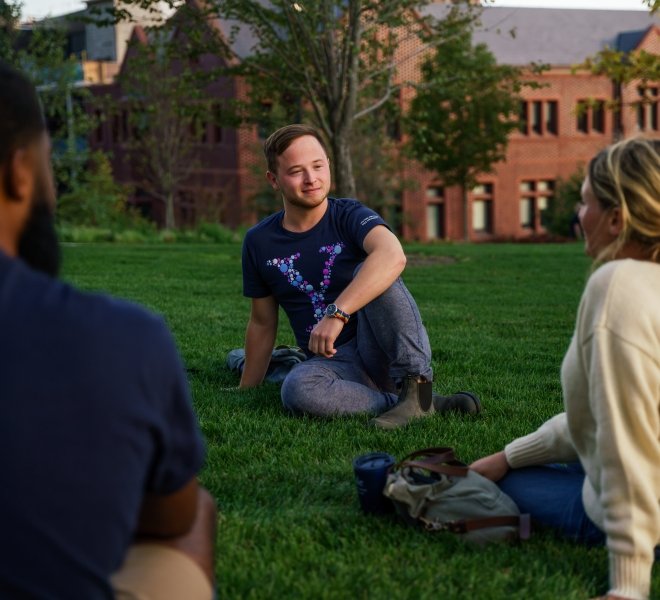
PhD/Master's Applicants
- Why Choose Yale Graduate School?
- Dates and Deadlines
- Standardized Testing Requirements

Non-Degree Program Applicants
Looking for non-degree programs? In some cases, it is possible to enroll at the Graduate School as a non-degree student. Non-degree students receive a transcript and many of the benefits of being a Yale student, but do not earn a degree upon completion of their enrollment. We offer three types of non-degree programs.
- Non-Degree Programs
How to Apply
Main navigation, the online application for 2024 entry is open..
Visit the Apply Now page to start your application for graduate study.
Select One Program
Out of the graduate degree programs listed on the Explore Graduate Programs page , you may apply to only one program per academic year.
The only exception is within the Biosciences PhD programs , where you may apply for two programs within a single application.

Central & Departmental Processes
We work in partnership with your graduate program of interest to ensure a smooth admission experience from the time you start your application until you enroll at Stanford.
Graduate Admissions
- Oversees the online application system
- Determines university-wide admission requirements
- Reviews the official documents of incoming graduate students to verify that they meet university-wide admission requirements
Graduate Program
- Oversees the review of applications
- May supplement university-wide requirements with program-specific admission requirements
- Communicates admission decisions and offers of financial support
Admission Process Overview
Application.
The first step is to prepare and submit your application materials through the online application system, by the deadline set by your intended graduate program.
After you submit your application, it is routed to your graduate program for review by its admission committee. Some programs conduct interviews as part of the evaluation process.
Your graduate program communicates the admission decision to you once it is finalized by the admission committee.
If you are admitted, you must respond to the offer of admission by the deadline set by your program. Some programs host "visit days" to help you make an informed decision.
Verification
If you accept the offer of admission, you must arrange for your official transcripts and degree documents to be sent to Graduate Admissions for verification.
Matriculation
After Graduate Admissions reviews your official documents, you are matriculated into your degree program. At this point, you are eligible to enroll in courses if you have no enrollment holds on your record. Note: If you are an international student, you have an enrollment hold until you arrive on campus.
Smart. Open. Grounded. Inventive. Read our Ideas Made to Matter.
Which program is right for you?

Through intellectual rigor and experiential learning, this full-time, two-year MBA program develops leaders who make a difference in the world.
A rigorous, hands-on program that prepares adaptive problem solvers for premier finance careers.
A 12-month program focused on applying the tools of modern data science, optimization and machine learning to solve real-world business problems.
Earn your MBA and SM in engineering with this transformative two-year program.
Combine an international MBA with a deep dive into management science. A special opportunity for partner and affiliate schools only.
A doctoral program that produces outstanding scholars who are leading in their fields of research.
Bring a business perspective to your technical and quantitative expertise with a bachelor’s degree in management, business analytics, or finance.
A joint program for mid-career professionals that integrates engineering and systems thinking. Earn your master’s degree in engineering and management.
An interdisciplinary program that combines engineering, management, and design, leading to a master’s degree in engineering and management.
Executive Programs
A full-time MBA program for mid-career leaders eager to dedicate one year of discovery for a lifetime of impact.
This 20-month MBA program equips experienced executives to enhance their impact on their organizations and the world.
Non-degree programs for senior executives and high-potential managers.
A non-degree, customizable program for mid-career professionals.
PhD Program
Program overview.
Now Reading 1 of 4
Rigorous, discipline-based research is the hallmark of the MIT Sloan PhD Program. The program is committed to educating scholars who will lead in their fields of research—those with outstanding intellectual skills who will carry forward productive research on the complex organizational, financial, and technological issues that characterize an increasingly competitive and challenging business world.
Start here.
Learn more about the program, how to apply, and find answers to common questions.
Admissions Events
Check out our event schedule, and learn when you can chat with us in person or online.
Start Your Application
Visit this section to find important admissions deadlines, along with a link to our application.
Click here for answers to many of the most frequently asked questions.
PhD studies at MIT Sloan are intense and individual in nature, demanding a great deal of time, initiative, and discipline from every candidate. But the rewards of such rigor are tremendous: MIT Sloan PhD graduates go on to teach and conduct research at the world's most prestigious universities.
PhD Program curriculum at MIT Sloan is organized under the following three academic areas: Behavior & Policy Sciences; Economics, Finance & Accounting; and Management Science. Our nine research groups correspond with one of the academic areas, as noted below.
MIT Sloan PhD Research Groups
Behavioral & policy sciences.
Economic Sociology
Institute for Work & Employment Research
Organization Studies
Technological Innovation, Entrepreneurship & Strategic Management
Economics, Finance & Accounting
Accounting
Management Science
Information Technology
System Dynamics
Those interested in a PhD in Operations Research should visit the Operations Research Center .

PhD Program Structure
Additional information including coursework and thesis requirements.

MIT Sloan Predoctoral Opportunities
MIT Sloan is eager to provide a diverse group of talented students with early-career exposure to research techniques as well as support in considering research career paths.
Rising Scholars Conference
The fourth annual Rising Scholars Conference on October 25 and 26 gathers diverse PhD students from across the country to present their research.
Now Reading 2 of 4
The goal of the MIT Sloan PhD Program's admissions process is to select a small number of people who are most likely to successfully complete our rigorous and demanding program and then thrive in academic research careers. The admission selection process is highly competitive; we aim for a class size of nineteen students, admitted from a pool of hundreds of applicants.
What We Seek
- Outstanding intellectual ability
- Excellent academic records
- Previous work in disciplines related to the intended area of concentration
- Strong commitment to a career in research
MIT Sloan PhD Program Admissions Requirements Common Questions
Dates and Deadlines
Admissions for 2024 is closed. The next opportunity to apply will be for 2025 admission. The 2025 application will open in September 2024.
More information on program requirements and application components
Students in good academic standing in our program receive a funding package that includes tuition, medical insurance, and a fellowship stipend and/or TA/RA salary. We also provide a new laptop computer and a conference travel/research budget.
Funding Information
Throughout the year, we organize events that give you a chance to learn more about the program and determine if a PhD in Management is right for you.
PhD Program Events
May phd program overview.
During this webinar, you will hear from the PhD Program team and have the chance to ask questions about the application and admissions process.
June PhD Program Overview
July phd program overview, august phd program overview.
Complete PhD Admissions Event Calendar
Unlike formulaic approaches to training scholars, the PhD Program at MIT Sloan allows students to choose their own adventure and develop a unique scholarly identity. This can be daunting, but students are given a wide range of support along the way - most notably having access to world class faculty and coursework both at MIT and in the broader academic community around Boston.
Now Reading 3 of 4

Profiles of our current students
MIT Sloan produces top-notch PhDs in management. Immersed in MIT Sloan's distinctive culture, upcoming graduates are poised to innovate in management research and education.
Academic Job Market
Doctoral candidates on the current academic market
Academic Placements
Graduates of the MIT Sloan PhD Program are researching and teaching at top schools around the world.
view recent placements

MIT Sloan Experience
Now Reading 4 of 4
The PhD Program is integral to the research of MIT Sloan's world-class faculty. With a reputation as risk-takers who are unafraid to embrace the unconventional, they are engaged in exciting disciplinary and interdisciplinary research that often includes PhD students as key team members.
Research centers across MIT Sloan and MIT provide a rich setting for collaboration and exploration. In addition to exposure to the faculty, PhD students also learn from one another in a creative, supportive research community.
Throughout MIT Sloan's history, our professors have devised theories and fields of study that have had a profound impact on management theory and practice.
From Douglas McGregor's Theory X/Theory Y distinction to Nobel-recognized breakthroughs in finance by Franco Modigliani and in option pricing by Robert Merton and Myron Scholes, MIT Sloan's faculty have been unmatched innovators.
This legacy of innovative thinking and dedication to research impacts every faculty member and filters down to the students who work beside them.
Faculty Links
- Accounting Faculty
- Economic Sociology Faculty
- Finance Faculty
- Information Technology Faculty
- Institute for Work and Employment Research (IWER) Faculty
- Marketing Faculty
- Organization Studies Faculty
- System Dynamics Faculty
- Technological Innovation, Entrepreneurship, and Strategic Management (TIES) Faculty
Student Research
“MIT Sloan PhD training is a transformative experience. The heart of the process is the student’s transition from being a consumer of knowledge to being a producer of knowledge. This involves learning to ask precise, tractable questions and addressing them with creativity and rigor. Hard work is required, but the reward is the incomparable exhilaration one feels from having solved a puzzle that had bedeviled the sharpest minds in the world!” -Ezra Zuckerman Sivan Alvin J. Siteman (1948) Professor of Entrepreneurship
Sample Dissertation Abstracts - These sample Dissertation Abstracts provide examples of the work that our students have chosen to study while in the MIT Sloan PhD Program.
We believe that our doctoral program is the heart of MIT Sloan's research community and that it develops some of the best management researchers in the world. At our annual Doctoral Research Forum, we celebrate the great research that our doctoral students do, and the research community that supports that development process.
The videos of their presentations below showcase the work of our students and will give you insight into the topics they choose to research in the program.
How Should We Measure the Digital Economy?
2020 PhD Doctoral Research Forum Winner - Avinash Collis
Watch more MIT Sloan PhD Program Doctoral Forum Videos

Keep Exploring
Ask a question or register your interest
Faculty Directory
Meet our faculty.
The Office of Admissions oversees the application process for prospective students interested in master’s and PhD programs . We answer questions about the online application and work with graduate program admissions committees, who make acceptance decisions.
Please review information about how to apply before contacting Admissions.
If you are interested in learning more about a program, reach out to the contact noted on the program page.
Non-degree Programs
The Visiting Students Program Office assists with inquiries about non-degree programs and the Office of Equity, Diversity, Inclusion & Belonging can answer questions about outreach programs.
Meet the Team
Have a general inquiry about graduate admissions? Email [email protected] .
Looking for the undergraduate office of admissions? Find their contact information here .

Explore Events
Related events, share this page.

Application Process
Invest in your future self.
Northeastern offers more than 200 online, in-class, and hybrid graduate degree and certificate programs across 20 different areas of study, meaning there are countless ways for prospective students to achieve their personal and professional goals.
The graduate admissions process varies by program or college. Prospective students should research their program of interest to learn about that program’s specific requirements and deadlines.
Get Started Today
Ready to apply? Application requirements vary by college and program. To review these details, visit any program page and reference the section titled “Admissions.” You can also visit the college websites below for more detailed information about the application process. Not sure what program you’re interested in? Explore all our graduate programs.
- Apply to the College of Arts, Media and Design
- Apply to the D'Amore-McKim School of Business
- Apply to the D'Amore-McKim School of Business - Online
- Apply to the College of Computer and Information Science
- Apply to the College of Engineering
- Apply to the Bouvé College of Health Sciences
- Apply to the School of Law
- Apply to the College of Professional Studies
- Apply to the College of Science
- Apply to the College of Social Sciences and Humanities
General Application Requirements
All graduate applicants need to submit the following:
- Online application form
- Transcripts from all undergraduate and graduate schools attended
- Read our blog post on how to write a strong statement of purpose
- Non-refundable application fee of $75 to $100 (if required)
- One to three letters of recommendation
- Professional resumé and/or curriculum vitae
- Official GRE, LSAT, or GMAT scores (If required by your program)
International Application Requirements
Students for whom English is not their native language must complete the steps above, but also:
- To learn more about English proficiency exam requirement waivers, please contact your college admissions office directly.
If you are applying to a business, social sciences, engineering, mathematics, or science program, and your proficiency in the English language does not meet the minimum requirement, you may apply to the university’s Global Pathways program . This program will help you improve your English language skills and academic knowledge before enrolling in your program of choice.
Other Resources
If you still have questions about the application process, or would like to learn more about our programs:
- Visit our Get Advice page for helpful tips, including how to connect with our admissions team to get your questions answered
- Explore our graduate degrees to find a program tailored to your personal career goals
- Email : [email protected]
- Call : (617) 373-2000
- Mailing Address:

Office of Graduate Education -

Apply to become a part of the Massachusetts Institute of Technology community.

Discover & explore
Why choose MIT? Our own graduate students have asked this very same question, and have shared their insights through insightful blog posts . Diverse students explore topics from choosing an advisor to balancing mental health and wellness.
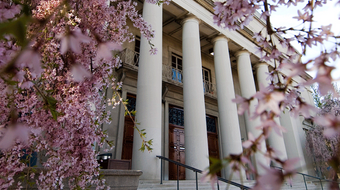
Incoming students
We’re excited to welcome you to MIT! As you prepare to come to Cambridge, lean on these important updates and helpful resources .

Quick links
- Frequently asked questions
- Costs & funding
- Admitted applicants
- International applicants
- Master’s degrees
- Doctoral degrees
This site uses cookies to give you the best possible experience. By browsing our website, you agree to our use of cookies.
If you require further information, please visit the Privacy Policy page.
Mathematics
Graduate admissions process, how to apply.
Apply online via the UI Graduate and Professional Admissions website.
After you submit your application, you will receive email instructions on how to establish your HawkID and password in order to access your Admissions Profile on MyUI, our online portal for students. All supporting materials can and should be uploaded through your Admissions Profile. If your academic program requires letters of recommendation, you will be asked to provide the contact information of your recommenders on your profile. The recommender will then receive an email from the Office of Admissions instructing them on how to upload a recommendation letter and/or recommendation form.
Applicants for admission to the graduate program must meet the admission requirements of the Graduate College and the department offering the degree program (review the General Catalog for departmental requirements). See the Manual of Rules and Regulations of the Graduate College on the Graduate College website for additional information.
You will be required to submit:
- Supplemental Information
- Unofficial academic records/transcripts
- If you do not have a degree from an English-speaking country
- Coursework information
- Statement of purpose
- Three letters of recommendation must also be completed and submitted usually by your present or former professors.
Important deadlines
Application deadline: Jan. 15 (for all programs)
We generally admit graduate students for the PhD degree and for the fall semester only. We admit a very low number of graduate students for the MS degree (typically one per year).
We begin consideration for admission and financial support on Jan. 15 for the following fall session. Offers of admission and teaching assistantships are usually sent out from February through May.
Requirements for admission
Applicants for the fall semester whose application materials are received by Jan. 15.
Admission and financial decisions are based on:
- Courses taken
- Grade-point average (GPA)
- Academic goals
- Letters of recommendation
- Test of English as a Foreign Language (TOEFL) scores.
Applicants should have at least a BA or BS in Mathematics, or equivalent. We usually expect an undergraduate grade point average of at least 3.20 for admission to the Master's degree program and 3.40 for admission to the PhD program.
We are aware, however, that there are differences in grading systems and severity from school to school. We consider all the evidence available, and for this reason it is to your advantage to submit as complete an application as possible. While we encourage submission of the GRE General Test scores and/or GRE Subject Test in mathematics score (if they are available), we do not require them.
Most teaching assistantships are awarded for the academic year, beginning with the fall session (late August). Very few are available beginning in the spring, and they are usually given to continuing students rather than new ones. Thus students requesting financial support should apply for admission for the fall session.
The TOEFL scores are used to predict the ability of a student to function effectively in courses taught in English and to work effectively in English as a teaching assistant (TA).
To be considered for admission:
- TOEFL score of 95 (iBT) for MS applicants
- TOEFL score of 100 (iBT) for PhD applicants
Those are not cut-off values, we have some flexibility. However, admission will not be granted for TOEFL scores lower than 81 (iBT). Students whose first language is not English but who will have a degree from a U.S. institution or other English-speaking country, generally need not submit a TOEFL score.

Laurent Jay

Xiaoyi Zhang

The Doctor of Philosophy degree requires an individual plan of study. For this reason, the bar to be admitted is higher than other programs and it is important that you extend your original research plans towards a clear problem you wish to tackle through your PhD education. Following is a description of the two-step application process to this degree..
About the Application Process
Application to this PhD program is a two-step process. Preliminary applications are reviewed for education background, research area and aptitude to perform independent research. The Graduate Group that oversees and implements the application review for the Interdisciplinary PhD at the university level, will only consider applicants whose research interests and research goals for PhD study do not fit within another existing Northeastern PhD program. Therefore, based on the materials provided through the preliminary application process, an applicant may be referred to another Northeastern PhD program or guided to pursue an MS degree before further consideration.
Applicants who submit a preliminary application will receive one of the following two from the Graduate Group.
- An invitation to continue their application. The Graduate Group may invite candidates to continue their application and refer the applicant to a different PhD or MS program. Applicants are strongly encouraged to follow this guidance because if at the end of the process it is determined that the research is a better fit with an existing degree program, they will not be admitted to this PhD.
- Referral to another PhD or MS degree program. In this case, the applicant is not invited to continue the process for this PhD and they are encouraged to continue graduate study through a different degree program.
When an applicant is invited to continue the process
The Graduate Group reviewed the preliminary application materials and determined that the research interest is a potential fit to the Interdisciplinary PhD. The next step in the application process is to meet with potential faculty advisors about the research topic. Because this degree is an individually designed program, the final admissions decision will be based on the applicant’s ability to advance their thinking around your PhD research topic through a series of individual conversations and independently revising the research statement. Applicants invited to continue the process are expected to complete the following steps:
- Meet with the faculty members identified by the Graduate Group to discuss areas of potential research.
- Revise the research statement based on conversations with faculty (1).
- After the research statement has been revised, invited applicants should submit a full application through the SLATE admissions system, which includes a series of compliance questions required to formalize admission as well as an application fee.
- Final review will include a comparison of the application submitted through SLATE, the preliminary application, feedback from faculty the applicant met with and input from other faculty experts.
Final Admissions Decision
The final admissions decision will be based on an overarching review of the application including:
- How far the applicant was able to advance the research proposal independently;
- How the proposed research is differentiated from other PhD programs offered by Northeastern;
- The availability of funding to support the applicant.
Because this Interdisciplinary PhD requires an individual plan of study, the bar to be admitted is higher than other programs and it is important that applicants extend their original research plans towards a clear problem they wish to tackle through the PhD degree. Therefore, an invitation to continue with the application should not be interpreted as an admission into the Interdisciplinary PhD. The final admissions decision will be determined based on the final materials submitted in SLATE.
How to apply for a PhD in the US
Lecturer giulia evolvi shares everything you need to know about applying for a phd in the us from start to finish.
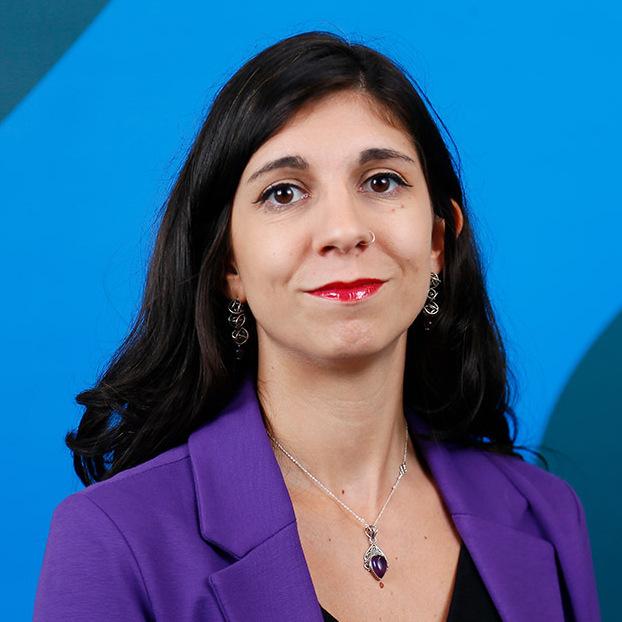
Giulia Evolvi
GRE . TOEFL . Statement of purpose . I remember staring at these terms when visiting university websites and trying to understand what they meant. After studying at universities in Italy and France, I decided to apply for a PhD programme in the US.
There are useful online resources on how to write successful application essays or how to understand the differences between studying in the US and Europe, but not many discuss the PhD application process. Supervisors and mentors in non-US universities are often not able to offer much support. This guide will help you start your applications, based on my personal experience of applying for a PhD in the US.

Get free support to study in the United States
Getting your tests: gre and toefl.
Applications for a US PhD programme usually require scores from GRE and TOEFL tests, exams that international students might be unfamiliar with. These tests are time-consuming and expensive, so it is important to start planning for them as soon as possible, especially because it can be difficult to find test locations outside the US.
The GRE is a test that every student, American or international, needs to take when applying to join a graduate programme. It has three parts: first is quantitative reasoning, which includes mathematical questions; second is verbal reasoning, which tests the knowledge of English words and can be challenging for international students because it is designed for English native speakers; third is analytical writing, consisting of two short essays where the student needs to critically assess a statement or position. Each university might require different scores for these three parts, and you send the scores automatically after the test to your selected list of universities.
International students also need to take the TOEFL to prove their knowledge of English. Students who come from English-speaking countries or who graduated from English-taught programmes usually do not have to take it, but it is important that you verify this with the universities you want to apply to.
For instance, students from countries where English is one of the official languages (such as India or Kenya) might nonetheless be required to take the TOEFL. Also, the results you submit must be from a test taken within the past two years old.
Each university will have different requirements in terms of the TOEFL score. The TOEFL has four parts (reading, listening, speaking and writing), and even if you are fluent in English it is usually best to get familiar with the format of each part to obtain a score that is high enough for graduate programmes.
Both are computer-based tests done through multiple-choice questions and writing/speaking exercises. Some students choose to hire tutors or attend courses to prepare for the GRE and the TOEFL, but it is possible to study for them individually by buying ETS books with exercises and/or using online resources.
PhD diary: Preparing for a PhD Is it possible to do a three-year PhD as an international student? How to decide if a postgraduate degree is right for you
Recommendation letters and transcripts
Applying for a PhD always requires a lot of paperwork, but documents for PhD applications in the US can be difficult to obtain for some international students.
Something quite crucial is the transcript of previous qualifications such as diplomas and degrees. Some universities in non-English countries offer diploma supplements that they send directly to American universities for the application process. In other cases, US universities require a certified translation, which can take time and money. It is important to communicate early and clearly with the universities you want to apply to and also with your home university to make sure it is possible to access all these documents.
Usually, PhD applications also require two or three reference letters. While this is a common practice across the world, US universities often want professors to send or upload them personally, which is not always the case in other countries. Deadlines are often non-negotiable, so I suggest that you identify people who can write reference letters for you and make sure they can do them in English and understand the submission process.
In some cases, you might also need to submit a bank statement. If you apply for programmes that offer full scholarship/funding (which I recommend), this is usually not necessary, but some universities may ask you to submit proof that you can support yourself throughout the programme. This is also required when you apply for a visa if you are not offered a scholarship.
The academic part: statement of purpose and writing samples
You might think that a long and detailed PhD project outline is the most important part of the application. While this is often true in many non-US countries, it is not always the case for US programmes. Instead, you usually have to write a one- or two-page statement of purpose in which you describe why you would fit in a given department.
Applications for US PhDs do not require personal connections with professors, and you do not need to have a supervisor in mind when you apply, but I suggest contacting professors in the department to verify whether your research interests match with theirs. Once accepted to the PhD programme, you will then select a supervisor and start writing your project.
In some cases, applications require a writing sample. Usually, it is advisable to send a university essay or a portion of your thesis. If you did not previously study in a programme taught in English, it is often possible to send a translation of your work or even a sample in another language.
Once all these documents and papers are gathered, you can start your applications. They are usually online, and there may be a fee for each application. It can be a long and expensive process, but many US universities welcome international students and offer an excellent education. In my case, it certainly was worth the effort.
You may also like

.css-185owts{overflow:hidden;max-height:54px;text-indent:0px;} 8 habits to help you get through your PhD
Shabana Khan

What is a PhD? Advice for PhD students

Looking for PhD tips? Why not check Twitter
Seeta Bhardwa
Register free and enjoy extra benefits
- connect with us
- 1800-572-9877
- [email protected]
- We’re on your favourite socials!

Frequently Search
Couldn’t find the answer? Post your query here
- Science Exams
- UGC NET Exam
- UGC NET News & Updates
- PhD Admission in India 2024: Dates, Eligibility, Entrance Exams, Admission Process, Top Colleges
Updated On: April 19, 2024 02:33 pm IST | UGC NET
PhD is the next step in the academic journey for students who are passionate about research. If you are considering PhD studies in India, then check out this article on PhD admission 2024 that talks about the admission process, entrance exam schedule and important dates for PhD admission!
PhD Admission 2024: Latest Updates
Application deadline for phd admission 2024 in top colleges, eligibility criteria for phd admission 2024, admission process for phd admission 2024, entrance exams required for phd admission 2024, top entrance exams schedule for phd admission 2024, top universities in india for phd admission 2024, preparation tips for phd admission, job prospects after phd in india.

PhD Admission in India 2024: PhD admission in India is determined by entrance exams such as the UGC, CSIR NET, IIT JAM, etc. Some universities also offer PhD admissions based on merit, followed by an in-person interview. For PhD admission at prestigious central universities like JNU, DU, etc., the National Test Agency (NTA) conducts the UGC NET entrance exam . UGC NET scores are accepted by most of the universities in India that offer PhD courses. To be eligible for PhD admission 2024 at top PhD colleges in India , applicants must have secured a minimum of 50% aggregate marks or equivalent CGPA in their postgraduate degree. As a part of the PhD admission eligibility, a valid cut-off score in an entrance exam is also required.
Doctor of Philosophy or PhD course is the highest degree or doctorate awarded for research in a specific subject, lasting three to five years. It involves substantial research work and presentation of the thesis, which is to be accredited by fellow academicians. Candidates interested in PhD admission 2024 in India are required to give presentations on their research work, submit their progress reports, and defend their thesis in an open defence viva voice. In this article, we will discuss everything you need to know about PhD course eligibility, the admission process, top colleges and universities, popular entrance exams, and more.
All PhD admissions for the academic year 2024 have been completed. Here is a list of important dates and events that occurred for your convenience. Here are the latest updates on PhD admission 2024:
- The entrance exam for the RGUHS PhD programme is scheduled for April 19 and 20, 2024.
- VIT Vellore PhD admission is now accepting applications through April 25, 2024, based on VITREE.
- By July 29, 2024, register for the PhD programme at ICFAI Jaipur.
The table below includes the top PhD colleges and their application dates for PhD admission 2024:
Students who intend to pursue PhD in India must meet the necessary PhD admission eligibility criteria required by their respective colleges. Listed below are the detailed PhD qualifications required for pursuing a PhD from India:
- Masters degree holders are eligible for PhD admission 2024 into the doctoral programme. Although, for some subjects, having a Master in Philosophy (MPhil) is one of the criteria for PhD admission eligibility. It must be noted by the candidates that in some Indian universities, for a Master's programme, a specific percentage (or equivalent CGPA) is required to satisfy a PhD course eligibility requirement.
- For admission into some reputable universities, a candidate must qualify for the all-India examination, like the National Eligibility Test for Lectureship (NET) conducted by NTA. Final-year students appearing in the qualifying degree examination can also apply although they must submit the attested copies of their qualifying degree certificates
- Admission is offered based on interview. Also, the interview may be supplemented with a written exam if needed.
- Candidates should have a valid Graduate Aptitude Test in Engineering (GATE) score to satisfy a PhD admission eligibility criteria in the field of engineering and technology. Also, candidates should have completed their degree in Masters of Technology (MTech / Masters in Engineering (ME) in any engineering branch to satisfy the PhD course eligibility in engineering.
The need for a PhD degree in India has increased in recent times because of the increasing career prospects and the growing requirement for higher specialisation. Applicants who want a PhD admission 2024 must consider the following points concerning the admission procedure as the admission is done based on merit and/or entrance exams.
- Admission into colleges/ universities in India is available for candidates in full-time and part-time programmes in various disciplines of engineering, arts, management, commerce, science, humanities, finance, law, medicine and IT.
- Candidates can choose to pursue their PhD either full-time or part-time. The minimum duration of PhD is two years wherein the course follows the semester system including theory and practical versions on the specialisation of a respective course.
- For PhD admission 2024, a Master's degree is required in India. Some universities in India offer seats to students having a minimum of 55% aggregate marks or equivalent.
- In some cases, doing an MPhil is a part of their PhD admission criteria to pursue courses offered by some universities.
- Admissions to a PhD programme is done through an entrance test at the university level or national level.
The admission procedure for both processes is described below.
The entrance exams for PhD courses conducted in India may vary university-wise. PhD admission in India is based on enrollment to several universities. Universities accept the results of either a national-level or a university-level entrance examination. The following section summarises the PhD admission 2024 entrance exam schedule. Mentioned below is the list of the top entrance exams for PhD in India:
As discussed, PhD admission 2024 is primarily based on entrance exams. Applicants can select from several PhD specialisations, including mathematics, engineering, education, and engineering. The table below shows the exam schedules for India's most competitive PhD entrance exams.
For PhD admissions, the majority of the universities/institutes conduct their entrance examinations and also consider the GATE/ NET scores. Here is a list of some of the popular universities in India offering PhD courses to the candidates:
Here are some preparation tips for PhD entrance exams which students can use for reference:
- Students should gather past year PhD entrance exam question papers from reliable sources and study accordingly.
- They must refer to the PhD entrance exam syllabus as per their specialisation.
- The entrance exam format varies depending on the conducting body; therefore, the aspirants must be informed of the structure to plan accordingly.
- They must cover all exam subjects at least one month before the exam.
- To relieve exam stress, the students must take advantage of the various mock tests available.
- Keeping up with current events is vital because they are essential for grades.
- Visiting the exam centre a day before the exam to avoid last-minute confusion about where the exam centre location is advised.
- Before the exam, students must get a good night's sleep.
In today’s world, there is immense scope for candidates after they have completed their PhD. Gone are those days when the scope of PhD was limited to academia. After completing a PhD, one should track their potential and apply to jobs based on exact skills and expertise. Following are a few career options that candidates can choose after pursuing a PhD:
- Lecturer & Professor
- Author & Writer
- Editor & Critic
- Human Services/ Social Worker
- Independent Consultant
- Philosophical Journalist
- Industrial R&D Lab professionals
- Senior Research Scientist
PhD is considered one of the most valued degrees not just in India but abroad as well. When it comes to your career graph, it can be a good qualification for the aspirants. Many colleges or universities offer this course for aspiring students, however, one should satisfy their respective PhD admission eligibility. With this, candidates will have in-depth knowledge and develop mastery over the subjects they have chosen for specialisation, which will be extremely useful for them in their careers.
Stay tuned to CollegeDekho for more such updates and information. Aspirants can also check out our QnA Zone to get their queries resolved by our experts. We wish good luck to all the candidates seeking PhD admission 2024 in India!
Are you feeling lost and unsure about what career path to take after completing 12th standard?
Say goodbye to confusion and hello to a bright future!
A PhD is an abbreviation for Doctor of Philosophy, which is the highest academic course level. The breadth of knowledge that a PhD bestows on its holders allows them to excel in research, analysis, and critical thinking to an extent that bachelor's or master's degrees cannot match.
A doctorate or PhD degree typically takes three years to complete. Candidates accepted into the programme have a maximum of 5 to 6 years to complete their research. However, the duration of the PhD programmes varies by institute.
A PhD programme allows you to specialise in a variety of fields. Chemistry Clinical Psychology Education Physics Electronics and Communications Engineering Educational Leadership and Administration are some of the popular doctorate level courses.
Whether a PhD is required after a master's degree depends on a candidate’s interests in a particular specialisation. To be eligible to enrol in a PhD programme, candidates must hold a master's degree in good standing. A PhD course can be pursued by students in any field.
A PhD is the highest educational qualification that can be obtained. A PhD candidate can expect to earn PhD salary between INR 6 and INR 12 lakhs per year.
The list of the top 10 easiest PhDs to obtain includes a PhD in Humanities, a PhD in Education, a PhD in Theology, a PhD in Business Administration, a PhD in Psychology, a PhD in Literature, a PhD in Criminal Justice, a PhD in Public Policy, a PhD in History, and a PhD in Sociology.
Yes. It is every so often possible to forego your master's programme and enrol directly in doctoral courses. You can choose to forego your PG degree by enrolling in a research programme after earning your bachelor's degree.
Yes, students can finish their PhD in two years. While a small percentage of exceptionally talented candidates can finish their PhDs in under 12 months, most applicants finish theirs in two years. The rarity and impressiveness of this cannot be overstated, but it is always possible. The secret to completing a PhD promptly is to have a solid academic background before you begin.
In most cases, a two-year Master's OR MPhil degree in the relevant field from any accredited Indian or foreign university is the minimal requirement for admission to a PhD programme. She or he must have earned a master's degree or a grade equivalent with at least 55%.
Was this article helpful?
Be the first to know.
Get Access to Latest Updates
Do you have a question? Ask us.
Typical response between 24-48 hours
Get personalized response
Free of Cost
Access to community
Similar Articles
- CUET 2024 City Intimation Slip (April 30): Release Date and Time, Download Link, List of Exam Cities
- List of Universities Accepting CUET 2024 Score
- Kerala University BSc Admission 2024 - Dates, Eligibility, Application Form, Selection Process
- LNMU Part 1 Online Admission 2024: Dates, Eligibility Criteria, Application Process, Admission
- Kerala University UG Admission 2024: Dates, Eligibility, Application Process, Allotment, Colleges
- Bihar BSc Agriculture Admission 2024: Dates, Entrance Exams, Eligibility, Application Process, Counselling Process and Top Colleges
Recent Articles
- IIT JAM 2024 Cutoff for IIT Bhilai: Check Opening and Closing Ranks for IIT Bhilai M.Sc Admission 2024
- IIT JAM 2024 Cutoff for IIT Bhubaneswar: Check Opening and Closing Ranks for IIT Bhubaneswar MSc Admission
- IIT JAM Cutoff 2024 for IIT (BHU) Varanasi: Check Opening and Closing Ranks for IIT Varanasi MSc Admission
- IIT JAM 2024 Cutoff for IIT Delhi: Check Cutoff for IIT Delhi MSc Admission 2024
- IIT JAM Biotechnology (BT) Cutoff 2024: Check Year & Category-Wise Minimum Qualifying Marks
- IIT JAM 2024 Mathematics (MA) Cutoff: Check Year & Category- Wise Minimum Qualifying Marks
- IIT JAM Chemistry Cutoff 2024: Check Year & Category-Wise Qualifying Cutoff Here
- IIT JAM Physics Cutoff 2024: Check Year & Category-Wise Qualifying Minimum Marks
- IIT JAM Mathematical Statistics Cutoff 2024: Check Year & Category-Wise Minimum Qualifying Marks
- IIT JAM Economics Cutoff 2024: Check Year & Category-Wise Minimum Qualifying Marks
- IIT JAM Geology Cutoff 2024: Check Year & Category-Wise Minimum Qualifying Marks
- IIT JAM 2024 Cutoff for IIT Madras: Check Opening and Closing Ranks for IIT Madras MSc Admission
- IIT JAM 2024 Cutoff for IIT Mandi: Check Opening and Closing Ranks for IIT Mandi MSc Admission
- IIT JAM 2024 Cutoff for IIT Jammu: Check Opening and Closing Ranks for IIT Jammu MSc Admission
- IIT JAM 2024 Cutoff for IIT Bombay: Check Opening and Closing Ranks for IIT Bombay MSc Admission
- IIT JAM 2024 Cutoff for IIT Patna: Check Opening and Closing Ranks for IIT Patna MSc Admission
- IIT JAM Cutoff 2024 for IIT Kanpur: Check Opening and Closing Ranks for IIT Kanpur MSc Admission
- IIT JAM Cutoff 2024 for IIT Hyderabad: Check Opening and Closing Ranks for IIT Hyderabad MSc Admission
- MG University UG Admission 2024: Dates, Courses, Eligibility, Application Process, Allotment
- Lucknow University UG Admission 2024: Dates (Out), Eligibility Criteria, Admission, Counselling Process
- Lucknow University BSc Admission 2024 - Dates, Application Form, Eligibility Criteria, Admission Process, Reservation Policy
- Calicut University UG Admission 2024: Dates, Eligibility, Admission and Selection Process
- Lucknow University PG Admission 2024- Dates (Out), Application Form, Eligibility, Counselling Process
Recent News
- APRJC Hall Ticket (Released) Download 2024
- GAT B Admit Card 2024 Released: Download link activated, important instructions
- APRJC Hall Ticket Expected Release Time 2024
- GAT B Admit Card Release Date and Time 2024
- CUET PG Result Link 2024 Activated: NTA releases result, list of top universities
- IIT JAM Admission Form 2024 Released: Register now for IIT M.Sc admission
- AP RCET Hall Ticket 2024 Download Link Activated
- AP RCET 2023-24 Hall Ticket Releasing Today: Check subject-wise exam schedule
- AP RCET Hall Ticket 2023-24 Release Time
- APRJC Hall Ticket Release Date 2024: Know when hall ticket download begins
- CUET PG Result 2024 likely to be released by last week of April
- CUET UG 2024 Application Form Correction Closing Today: List of details allowed to correct
- CUET PG Response Sheet 2024 Live Updates: Answer key download link, pgcuet.samarth.ac.in
- AP RCET Application Form Correction 2024 Begins: List of details allowed to edit
- CUET PG 2024 Responses with Key Releasing Today: Steps to file objections
- GAT-B 2024: Top participating institutes, scholarships
- IIT JAM CCMN Counselling Expected Start Date 2024
- IIT JAM 2024: Admission form to be released on April 10, important details
- NEST Application Form 2024 Released at nestexam.in, list of courses
- IIT JAM Scorecard 2024 Released: Counselling registration to begin on April 10
- IISER AT Application Form 2024 Released: Registration link activated, important instructions
- AP PGCET Application Form 2024 Released; Registration link activated, important dates
- CUET PG 2024 Response Sheet Expected Release Time
- CUET UG 2024 Form Correction Dates Revised: Registration last date extended
- NEST 2024 Registration Begins Today: Check eligibility criteria and fees
- UGC NET June 2024 Registration likely from April first week: UGC Chairman
- CUET PG Response Sheet 2024 to be released on April 4 at pgcuet.samarth.ac.in
- NEST 2024 Application Form Revised Release Date Out: Registration to begin on March 30
- CUET UG 2024 Registration Last Date Extended: Check revised dates to fill application form
- CUET UG Application Form 2024 Closing Today: Know when form correction begins
Trending Now

Subscribe to CollegeDekho News
Top 10 science colleges in india.
- Approved by: Other
- Type: Private
- Download Brochure
- Approved by: NAAC
- Type: University
- Approved by: University of Delhi, NAAC
- Approved by: UGC, NAAC, AICTE
- Type: Private UnAided
- Approved by: UGC, NAAC
- Type: Private Aided
- Type: Local Body
- Get Free Counselling
- Approved by: Other, AICTE
Popular Degrees
- B.Sc. (Bachelor of Science)
- M.Sc. (Master of Science)
- B.Sc. + M.Sc.
CollegeDekho's expert counsellors can help you with all your doubts
- Enter a Valid Name
- Enter a Valid Mobile
- Enter a Valid Email
- By proceeding ahead you expressly agree to the CollegeDekho terms of use and privacy policy
Details Saved

Your College Admissions journey has just begun !
Try our AI-powered College Finder. Feed in your preferences, let the AI match them against millions of data points & voila! you get what you are looking for, saving you hours of research & also earn rewards
For every question answered, you get a REWARD POINT that can be used as a DISCOUNT in your CAF fee. Isn’t that great?
1 Reward Point = 1 Rupee
Basis your Preference we have build your recommendation.

Dates and Deadlines
Main navigation.
The application to join the 2025 cohort opens June 1, 2024 .
Our dates and deadlines help you plan ahead for your applications.
Each incoming Knight-Hennessy scholar must also apply to, be accepted by, and enroll in a full-time Stanford graduate degree program.
If you have already been offered and deferred admission to enroll in a full-time Stanford graduate program in 2024, or you are a Stanford PhD student who will start your PhD in 2023 and will begin your second year in 2024, then you must submit one application to Knight-Hennessy Scholars .
Otherwise, you must submit two separate but concurrent applications; one to Knight-Hennessy Scholars, and one to your Stanford graduate degree program . This applies both to candidates seeking admission to their first Stanford graduate degree program, as well as to current Stanford graduate students adding a second graduate degree.
Last updated October 11, 2023.
Jack N. Averitt College of Graduate Studies
Doctor of Physical Therapy, DPT
About the program.
Format : In person on the Armstrong Campus in Savannah Credit Hours : 134 Entry Terms : Summer
The Doctor of Physical Therapy Program at Georgia Southern University is a full-time, nine-semester program that is comprised of academic coursework and three full-time clinical affiliations (with a minimum of 32 weeks of full-time clinical practice), in addition to other smaller clinical experiences. Upon completion of the program, all students are awarded a Doctor of Physical Therapy (DPT) degree. All program graduates are eligible to take the National Physical Therapy Examination and apply for state licensure in all jurisdictions. Admission is limited to 36 students per class.
The Doctor of Physical Therapy program is offered at the Armstrong Campus in Savannah.
Ready to Apply?
Request information, visit campus.
This program uses an external application system.
Or, you can :
Admission requirements.
The Georgia Southern University DPT Program participates in the Physical Therapist Centralized Application System (PTCAS). To learn more about the PTCAS application process and apply online, please visit the PTCAS website, ptcas.org . Applicants must review Georgia Southern University’s program page on PTCAS for program-specific prerequisites and application requirements.
Applicants must review Georgia Southern University’s program prerequisites and application requirements and directions on the PTCAS program page . The requirements are also available on the Georgia Southern University DPT Program page .
ALL application documents will be collected by PTCAS.
Prerequisite Courses
- Applicants must complete the requirements for a baccalaureate degree and any additional prerequisite coursework from a regionally accredited institution. While any major field of study is acceptable, the degree and all prerequisite courses must be completed prior to matriculation.
- Prospective students must have earned a grade of C or higher in all the prerequisite courses. In the event that courses are taken more than once, grades will be averaged (see below for more information about GPA calculations). Online classes are accepted for fulfillment of prerequisite courses, including lab science courses. AP courses are accepted for fulfillment of prerequisite courses, but they will not be included in GPA calculations.
- Applicants must demonstrate an understanding of the social, biological and physical sciences and mathematics so that they can comprehend and integrate physiological, pharmacological, behavioral and biomechanical principles into physical therapy practice. Applicants must also demonstrate effective oral and written communication skills.
- A one-year sequence of basic (general, inorganic) chemistry with laboratories that is designed for science or health professions majors;
- A one-year sequence of general physics with laboratories (both calculus or non-calculus physics are acceptable) that is for science or health professions majors and which include mechanics, electricity, magnetism and light;
- A one-year sequence of anatomy and physiology with laboratories (either as two combined anatomy and physiology courses or with one course in physiology and one course in anatomy) which may be lower division human anatomy and physiology courses for health professions majors or upper division vertebrate or human physiology and comparative or developmental anatomy. Applicants are also encouraged to take advanced human physiology and anatomy courses such as exercise physiology, neurophysiology, advanced human physiology, kinesiology and/or biomechanics;
- One general biology course with laboratory (botany, ecology, and environmental science are not acceptable substitutes).
- One course in statistics (at a minimum, covering measures of central tendency, probability distributions, and linear regression).
- Two courses in the social sciences are also required. Abnormal psychology and human development are recommended to fulfill this requirement.
- Applicants are also encouraged to take advanced human physiology and anatomy courses such as exercise physiology, neurophysiology, advanced human physiology, kinesiology and/or biomechanics.
- Minimum overall GPA of 3.0
- Minimum physical science GPA of 3.0
- Please refer to PTCAS for information about how GPA’s are calculated and which courses are included in the Science GPA. Any coursework completed after an application is submitted will not be considered in the GPA calculations, since it will not be verified by PTCAS.
- No grade of D or F will be acceptable for satisfaction of the prerequisite courses. If an applicant earns a grade of D or F in a prerequisite course, that applicant may retake that course only one time. No more than two prerequisite courses may be repeated with the goal of earning a passing grade. Applicants may repeat courses with grades of C or higher to improve their prerequisite course GPA, but repeated courses will be averaged in the calculation of the applicable GPA.
Graduate Record Exam (GRE)
- When requesting to have GRE scores sent to Georgia Southern University Doctor of Physical Therapy (DPT) Program , the appropriate codes to be used are:
- school code 7813
- department code 0619.
- If you use any other school code, including 5253 (the general Georgia Southern University code), your GRE score will not be added to your PTCAS application.
2. Applicants must meet the following GRE requirements in order for their application to be considered:
- Minimum score of 146 on the verbal reasoning section
- Minimum score of 144 on the quantitative reasoning section
- For students whose second language is English, a TOEFL score of at least 600 paper-based, 250 computer-based or 80 internet-web-based may be substituted for the minimal verbal GRE score. The TOEFL score is not used in calculating a final application score during review of the applications, as there is no mechanism for converting a TOEFL score into a GRE score. As a result, the applicant’s application score may be lower than those of applicants who took the entire GRE.
The CASPer Test
Altus suite.
All applicants applying to the DPT Program at Georgia Southern University are required to complete an online suite of assessments through Altus Suite (formerly called the CASPer Test), to assist with our selection process for the 2024-2025 Application Cycle.
Altus Suite is an online assessment of non-cognitive skills, interpersonal characteristics, and personal values and priorities that we believe are important for successful students and graduates of our program. Altus Suite will complement the other tools that we use for applicant screening. Altus Suite consists of:
- Casper: a 60-90 minute online situational judgment test (SJT)
You will register for Altus Suite for the US Professional Health Sciences test ( CSP-10101) .
Access www.TakeAltus.com to create an account and for more information on important dates and requirements , and the Altus Suite assessments. Altus Suite results are valid for one admissions cycle.
Physical Therapy Observation Hours
Applicants should have an understanding of the scope of physical therapy practice. This understanding is best developed through observation of physical therapists in multiple types of clinical practice. For the 2023-2024 admissions cycle, applicants are recommended to demonstrate a total of 75 hours of observation under a licensed physical therapist.
We acknowledge the impact of COVID-19 on healthcare systems and applicants’ ability to complete observation hours. As a result, we have moved from requiring 75 observation hours to recommending them. These circumstances will be considered in the review of applications. PT observation hours that have been completed or are planned should be included in the PTCAS application but do not need to be verified by a physical therapist in order to be submitted.
Reference Forms
Applicants are required to submit 3 references, one of which must be written by a physical therapist who has observed and supervised the applicant in a clinical setting. All of the references must be included in the PTCAS application.
Supplemental Material
- All potential and enrolled students in the DPT Program must meet intellectual, physical, and social competencies in order to provide safe patient care and successfully complete the program. Applicants must review the Core Performance Standards posted on the DPT Program website . Applicants are required to review the Core Performance Standards and answer a question about this in the Supplemental Questions section of the PTCAS application.
- The following documents are required to apply for admission to the Doctor of Physical Therapy (DPT) program: Physical Therapist Centralized Application Service (PTCAS) application (www.ptcas.org) , official transcripts from every college and university attended, official GRE score reports, three completed references, 75 verified observation hours, and CASPer Test results. ALL application documents, with the exception of CASPer Test results, will be collected by PTCAS.
- Meeting the minimum criteria for application does not guarantee admission to the Doctor of Physical Therapy program. It should be noted that the pool of applicants for the program includes many highly qualified persons, and the number of available positions is limited.
- All accepted students are required to submit evidence of current health insurance, CPR certification, immunizations, TB test, health appraisal, and GS liability insurance upon matriculation and prior to participation in clinical experiences. Students are also required to complete a background check and drug screening process upon matriculation and as required by clinical sites. Official final transcripts must be submitted upon matriculation.
Admission Process
- All applicants must also refer to the Program website information for possible annual-cycle-specific modifications to requirements and processes.
- Program applications are available through the Physical Therapist Centralized Application Service website (www. ptcas.org). The Georgia Southern University Graduate Studies application is not used.
- Specific application deadlines are set annually and are posted at the PTCAS (www.ptcas.org) and program websites . More information about the admissions timeline is also available at the program website.
- A half-day interview is required for admission. Interviews are fully online and scheduled by invitation only.
- Students selected for admission must formally accept the position and submit a non-refundable deposit. Students who matriculate in the DPT Program at Georgia Southern University will have their deposits refunded during the first week of classes.
*International transcripts must be evaluated by World Education Services (WES) through the PTCAS application. Select the WES ‘course by course’ option with grades. Please check the PTCAS website for specific instructions about transcripts.
Priority Application Deadline: September 2, 2024
If an applicant’s PTCAS application (including observation hours and references), official transcripts, and GRE scores are submitted by September 2, 2024, their application will be guaranteed full consideration.
GRE Deadline for Priority Applications: August 23, 2024
In order to receive priority consideration, applicants must take the GRE and request scores be submitted to School Code 7813 by August 23, 2024. Scores will be accepted from tests taken at testing centers and through GRE at Home.
CASPer Test for Priority Applications: August 27, 2024
This is the last test date for Priority Deadline applicants.
Final Application Deadline: October 1, 2024
This is the final deadline to submit your application in PTCAS. Applicants must request their official transcripts ahead of this deadline so that their application will be complete.
Final GRE Deadline: September 27, 2024
Applicants submitting their application by the Final Deadline must take the GRE and request scores to be submitted to School Code 7813 by September 27, 2024. Scores will be accepted from tests taken through GRE at Home.
Final CASPer Test: September 29, 2024
This is the last CASPer test date for applicants submitting their application by the Final Deadline.
Program Contact Information
Admissions Contact [email protected] 912-344-3220
View Information Session Schedule
Last updated: 4/19/2022
- Preferred Graduate Admissions
- All Graduate Programs
- Certificate Programs
- Endorsement Programs
- Online Programs
- Tuition Classification
- Graduate Assistantships
- Financial Aid
- Request More Information
- Schedule A Visit
Contact Information
Office of Graduate Admissions Physical Address: 261 Forest Drive PO Box 8113 Statesboro, GA 30460 Georgia Southern University Phone: 912-478-5384 Fax: 912-478-0740 gradadmissions @georgiasouthern.edu
Follow us on Facebook!
Georgia Southern University College of Graduate Studies
Office of Graduate Admissions • P.O. Box 8113 Statesboro, GA 30460 • 912-478-5384 • [email protected]
Privacy Overview
What Do Admission Committees Look For in College Applicants?
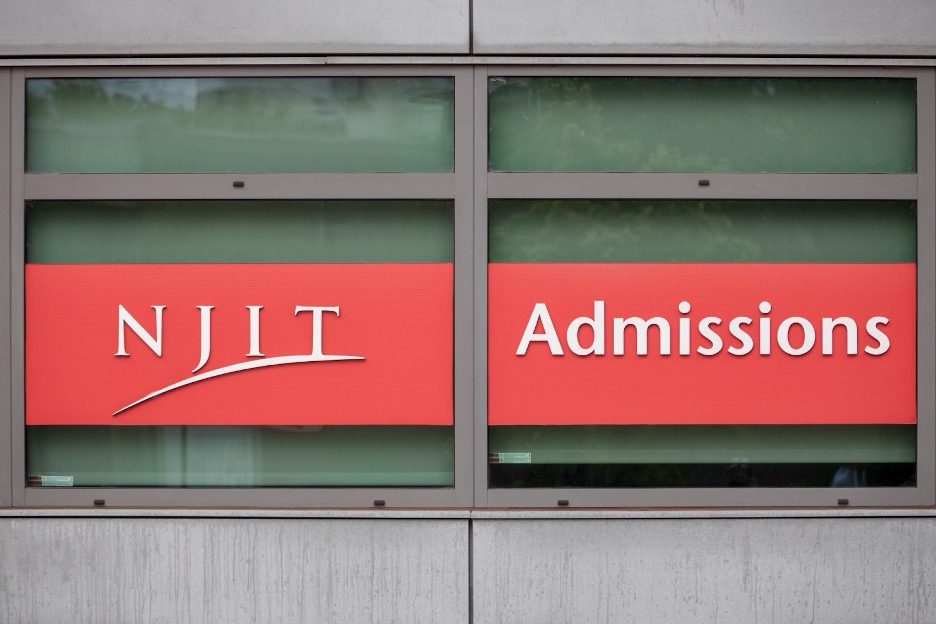
When it comes time for your college or graduate school search, the application process can be the most daunting part. From asking for recommendation letters to writing a stellar essay, applying to college is no walk in the park, especially when you're juggling multiple applications at once. After finally submitting your application, you may be ready to take a deep breath and relax. But even still, you may find yourself asking questions such as, what will the admissions committee think of my application? Was my application good enough? Understanding what admissions looks for in applicants can help you craft a stellar application.
What Do Admissions Committees Look For in College Applicants?
College applications ask for a variety of information and materials, which may initially feel overwhelming. However, it's essential to view this process as your opportunity to personalize your application and showcase your unique strengths, interests, and experiences. College admissions officers typically look for a combination of academic achievements, extracurricular activities, personal qualities, and unique experiences, taking a holistic approach to evaluating college applicants. In this blog, we'll go over each criteria the admissions committee considers when reviewing college applications so that you can feel confident in your submission.
1. Academic performance
As you probably already know, a key component to a college application is academic performance . Whether you're applying to college from high school or looking to earn your master’s degree, there are several grade criteria that admissions take into consideration. Not only is your GPA considered, but the types of courses you took plays an important role. Taking rigorous courses such as AP courses in high school or upper-level courses in college will strengthen your academic profile. The admissions committee wants to see evidence of strong academic performance and the ability to handle college-level coursework.
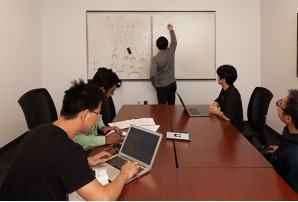
2. Essays and personal statements
Essay prompts and personal statements are a common aspect of a college application. Personal statements and essays allow you as an applicant to showcase your personality, passions, interests, and writing abilities. These writing assignments are an excellent opportunity for you to show why you’d be a great fit for the college program you’re applying to. Admissions officers look for essays that are authentic, well-written, and demonstrate self-reflection. They also look to determine how the program will help you meet your goals. Be creative and most importantly, be yourself so that your essay can be compelling, memorable, and an accurate reflection of who you are.
3. Letters of recommendation
A letter of recommendation is your chance to further support your application from a different perspective. Letters of recommendation from teachers, counselors, coaches, supervisors, or mentors provide insights into an applicants' character, work ethic, and potential for success in college. A recommendation letter can offer anecdotes, examples, and observations that test scores and essays can’t. When requesting recommendation letters , ask academic or professional sources that you have developed a meaningful connection with and who can provide positive insights about your character and abilities. Strong letters of recommendation can help applicants stand out.

4. Extracurricular activities
Being involved in extracurricular activities can help demonstrate your well-roundedness and passions, which will further strengthen your application. Admissions committees will get a greater sense of who you are and what you are interested in, which can help them determine whether you’d be a good fit for the program. They also look to see how you are able to balance activity involvement with academics. If you’re involved in a few extracurriculars, be sure to highlight them in your application, whether it's a sports team, student club, volunteer work, or an internship.

5. Demonstrated interest
Another important factor that admission committee’s take into consideration when evaluating college applications is the students interest in the school and program they’re applying to. The committee wants to see a student’s demonstrated interest as it can help them determine that the student will fit with the campus culture and community, and that they are more likely to enroll in the school. Applying early, expressing your eagerness in your essays, showing off your knowledge of the school or program you're applying to, and attending college events such as open houses or information sessions are all ways you can demonstrate your interest to the committee.
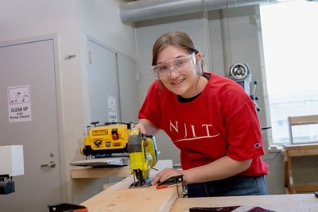
Tips for Crafting a Standout College Application
Now that you have a better understanding of what goes on in the admissions process, here are a few tips to help you craft a standout college application.
1. Make your application strong where you can
Overall, the review of college applications by admissions is typically a holistic process and no single factor determines admission. If you feel that your application might be lacking in an area or two, you can likely compensate for it by showcasing strength elsewhere. If you have great writing skills, be sure to write a stellar essay. Or, if you participated in different extracurricular activities, highlight your accomplishments in your application. Be sure to make your application as strong as possible where you can.

2. Proofread
It may seem simple, but proofreading not just your essay, but all of your application material is a crucial part of your college application. Be sure to read over your personal statement, resume, essays, and any forms you fill out for any grammatical errors and spelling mistakes. Having a second pair of eyes can be helpful to catch any mistakes you may have missed, so don’t hesitate to ask a friend, family member, or teacher for help.

3. Stay organized
Chances are you aren’t applying to just one college. You may have a few top choices for universities you’d like to attend on your radar, and a few backup options for extra measure. Having several applications you're working on is even more reason to stay organized. Keep track of application deadlines, requirements, and submission materials for each college you're applying to. You can create a checklist or use a planner to stay organized throughout the process.

Create an outstanding college application
Crafting a great college application can be challenging, but understanding key components and guidelines can make the process easier and less stressful. When completing your application, try to do your best for each component and emphasize your strengths. All in all, the admissions committee simply wants to see if you’d be a good fit for the school, and having a strong application that aligns with your goals and the program will help you stand out. If you’re ready to begin the next step in your academic journey, apply to one of NJIT’s top-STEM programs today .
- You Are At:
- Higher Studies
DU PG 2024 admission through CUET: Delhi University likely to begin application process for 13,500 seats today
Delhi university is expected to release application forms for du pg admission 2024 today, april 25. all those who are seeking admission to the post-graduate programmes through cuet pg 2024 in du can check the details about the registration procedure here..

A total of 13,500 seats for PG seats will be filled through this admission procedure, which includes Non-Collegiate Women’s Education Board, 120 seats each for three BTech and 60 seats each for BA LLB and BBA LLB courses. The PG admissions will also include courses on MA Hindu Studies, MA Public Health, MA Chinese Studies, MA Korean Studies, and Master in Fine Arts, as per the news agency.
How to apply for DU PG admission 2024 through CUET?
- Visit the official website, pgadmission.uod.ac.in
- Click on 'New Registration' link
- Register yourself on CSAS portal
- Once done, fill out the application form
- Upload documents, pay application fee and take a printout of the confirmation page for future reference
After the completion of the application procedure, the varsity will release the first allocation list following which candidates will have to accept the allocated seat. Thereafter, the respective department or college will verify the application forms. The students will have to pay the fees to reserve their seats.
ALSO READ | DU Admission 2024 Application forms soon for UG, and PG, check latest updates
As per the news agency, the admission procedure for undergraduate courses will start after the conclusion of the CUET UG exams. The dates for the UG admissions will be shared by Mid-May, as per the information given by Dean Admissions Haneet Gandhi.
Selection Criteria
As per the official brochure, admissions to all Postgraduate Programs at the University of Delhi (UoD) and Non-CollegiateWomen Education Board (NCWEB) will be based on the scores obtained in the CUET PG 2024. Only the scores obtained in the Common University Entrance Test PG 2024 will be considered for admissions to the academic year 2024-25.
ALSO READ | Delhi University, South Campus to launch studio for Journalism Department, Rs 70 lakh fund approved
Eligibility Criteria
For candidates belonging to the UR/OBC-NCL/EWS category, the minimum eligibility is 50 %marks aggregate or equivalent grade in the qualifying examination, while, it is 45 per cent for candidates belonging to the SC/ST/PwBD category as per the Program-Specific Eligibility.
Read all the Breaking News Live on indiatvnews.com and Get Latest English News & Updates from Education and Higher Studies Section
- delhi university
- delhi university admission
- delhi university colleges
- Education News
- higher studies

Manipur: Two CRPF personnel killed, two injured in militant attack in Bishnupur

Sonali Bendre, Jaideep Ahlawat, Shriya Pilgaonkar react to Nora Fatehi's remarks on feminism

Archery World Cup 2024: India claim gold in men's, women's and mixed compound team event
Related Higher-studies News

JEE Main Topper List 2024: Gajare Nilkrishna Nirmal kumar secures AIR 1, 56 score 100 percetile

JEE Main 2024 session 2 Result OUT: How to calculate percentile using marks?

JEE Main 2024 Session 2 result declared, direct link here

NEET UG 2024 admit card to be out soon on exams.nta.ac.in, exam city released

JEE Main Session 2 Result 2024 expected today: How to download scorecards?
Latest News

US: Columbia anti-Israel protest leader banned for saying 'Zionists don't deserve to live'

Delhi-NCR may receive light rain, thunderstorms today, heat wave in Bengal, Bihar, UP to continue
- Aap Ki Adalat
- Aaj Ki Baat
- Kurukshetra
- Haqiqat Kya Hai
- Entertainment

Special Report: Was the enthusiasm for Muslim voting higher on Friday?

Modi Aur Musalman: Pathan has decided to target only Narendra Modi!

Aaj Ki Baat: Second round 'set' the election?

Haqiqat Kya Hai: Modi Confident..I.N.D.I faction heavily DISAPPOINTED

Chunav 360: EVM gets green signal
- Maharashtra
- Uttar Pradesh
- Madhya Pradesh
- West Bengal
- Jammu & Kashmir
- Chhattisgarh

Amritpal Singh, Khalistan sympathiser, has agreed to contest Lok Sabha polls as Independent: Mother

Lok Sabha Elections 2024: Second phase ends, check each state's voter turnout in comparison to 2019

Lok Sabha elections: Nearly 61 pc turnout in Phase 2 voting, Tripura records highest vote percentage

'Phase two too good, support for NDA will disappoint Oppn even more': PM Modi after end of polling

Puri Lok Sabha Election 2024: Will BJP's Sambit Patra, who put up a close fight in 2019, defeat BJD?
- Constituencies
- Key Candidates

IPL 2024 Points Table: Punjab Kings move past Mumbai Indians after record chase against KKR

IPL Rising Star: Riyan Parag, Rajasthan Royals' pocket-sized dynamo

Ton-up Bairstow powers Punjab Kings to highest-ever successful chase in T20 history to beat KKR

KKR vs PBKS IPL 2024 Highlights: Bairstow, Shashank go berserk as Punjab Kings pull off record chase

Narine, Phil Salt achieve highest opening partnership of IPL 2024, KKR smash 261 vs PBKS

Yemen's Houthis strike India-bound oil tanker in Red Sea amid Gaza conflict

24 more Indian fishermen, arrested by Sri Lankan Navy, repatriated to India

Vietnam's head of parliament resigns amid 'blazing furnace' anti-corruption probe

Is there a UFO in New York? Mysterious 'flying cylinder' caught on camera, baffles citizens | VIDEO

Blinken meets Chinese President Xi as recent tensions threaten to sour US-China relations
- Celebrities

Ruslaan Review: Aayush Sharma-starrer has all essential elements of action and entertainment

Shah Rukh Khan's son AbRam's CUTE reaction on Shreyas Iyer's dismissal goes viral

'Taarak Mehta Ka Ooltah Chashmah' actor Gurucharan Singh aka Sodhi goes missing

'We are in good...', Anne Hathaway REVEALS details about the third installment of Princess Diaries 3
- Live Scores
- Other Sports

Want to know how someone used your phone? Dial this code to get complete history

Scammers are posing as MS Dhoni to dupe people, DoT issues warning to citizens

Realme C65 5G starting at Rs 10,499 launched in India: Check price, specifications, availability

Samsung likely to hold its next Galaxy Unpacked Event in July: All we know so far

Apple releases new AI model that can run on phones, laptops: Details here

Getting unknown calls on new number? Here's what is Recycled Mobile Number, how this policy works

What is end-to-end encryption and why is WhatsApp against breaking it? | Explained

Why is Karnataka government at centre of controversy over Muslim reservation in OBC quota? Know here

What is UK's Rwanda deportation bill and why is it such a big issue for Rishi Sunak? Explained

Muizzu's party wins Maldives polls despite geopolitical turbulence: What does this mean for India?

Horoscope Today, April 27: Libra's financial condition will improve; know about other zodiac signs

Horoscope Today, April 26: Full family support for Virgo; know about other zodiac signs

Horoscope Today, April 25: Marital bliss for Sagittarius; know about other zodiac signs

Horoscope Today, April 24: Day of enthusiasm for Pisces; know about other zodiac signs

Horoscope Today, April 23: Capricorns to avoid unnecessary thinking; know about other zodiac signs

Study finds immersing in nature reduces inflammation levels

Want to keep your gut healthy during summer? Essential tips you need to follow

Varicose Veins problem? Treat this condition with Ayurvedic therapies

Superfood Cucumber: Know THESE 5 benefits of Kheera

Horlicks rebranded as 'Functional Nutritional Drink' after dropping 'Health' label
- Relationships

Soothing Sunburn to Hydrating Skin: 5 aloe vera beauty hacks for summer

Makhana vs Murmura: Which one is healthier?

Indian stews reign supreme on Taste Atlas' rankings

Watermelon Mint Cooler to Cucumber Limeade: Stay cool with these refreshing drinks this summer

Lok Sabha Elections: Why do indelible ink used after voting and how long does it take to disappear?

- MEDIA ROOM /
- Press Releases /
Vincent Lloyd, PhD, Named 2024 Guggenheim Fellowship Recipient
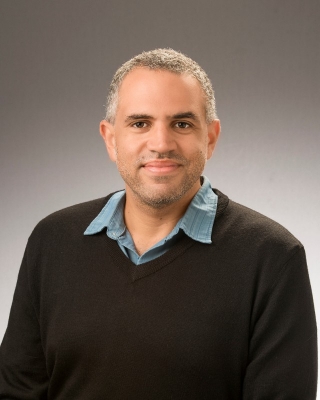
VILLANOVA, Pa. (April 19, 2024) – Vincent Lloyd, PhD, a professor of Theology and Religious Studies and Director of the Center for Political Theology at Villanova University, has been named a 2024 Guggenheim Fellow . Chosen through a rigorous application and peer review process from a pool of almost 3,000 applicants, Dr. Lloyd is one of 188 fellows selected for this prestigious fellowship based on “career achievement and exceptional promise.” In all, 52 scholarly disciplines and artistic fields, 84 academic institutions, 38 US states and the District of Columbia, and four Canadian provinces are represented in the 2024 Guggenheim Fellow class.
Since its founding in 1925 by Senator Samuel Guggenheim, the Foundation has awarded over $400 million in fellowships to more than 19,000 fellows. Each fellow receives a monetary stipend to pursue independent work at the highest level under “the freest possible conditions.” Many Fellows’ projects directly respond to timely issues such as democracy and politics, identity, disability activism, machine learning, incarceration, climate change and community.
"Congratulations to Dr. Lloyd on this well-deserved recognition," said Adele Lindenmeyr, PhD, William and Julia Moulden Dean of the College of Liberal Arts and Sciences. "The Guggenheim Fellowship is among the most prestigious awards in academia, recognizing individuals whose work demonstrates exceptional depth, promise and impact. Dr. Lloyd’s selection reflects his distinguished scholarly reputation and the timeliness of his compelling new project on the controversial Black intellectual and radical, Harold Cruse."
Selected as a Guggenheim Fellow in discipline of Intellectual & Cultural History, Dr. Lloyd’s research and teaching focuses on issues and trends related to religion in politics and race, and their impact on social change. Most recently, he is the author of Black Dignity: The Struggle Against Domination (Yale University Press), co-author of Break Every Yoke: Religion, Justice, and the Abolition of Prisons (Oxford University Press), and co-editor of the forthcoming Political Theology Reimagined (Duke University Press). Dr. Lloyd has co-edited the journal Political Theology for the past 12 years, and he co-edits the Transforming Political Theologies book series. Dr. Lloyd previously held fellowships from the American Council of Learned Societies, the Louisville Institute, Durham University (UK), Emory University and Notre Dame.
During his Guggenheim Fellowship, Dr. Lloyd will be writing Harold Cruse: Contrarian Radical , a biography of one of the forgotten founders of Black studies, to be published by Yale University Press.
About the Guggenheim Foundation : Created and initially funded in 1925, by US Senator Simon and Olga Guggenheim in memory of their son John Simon, the John Simon Guggenheim Memorial Foundation has sought to “further the development of scholars and artists by assisting them to engage in research in any field of knowledge and creation in any of the arts, under the freest possible conditions.”
Since its establishment, the Foundation has granted over $400 million in Fellowships to more than 19,000 individuals, among whom are more than 125 Nobel laureates, members of all the national academies, winners of the Pulitzer Prize, Fields Medal, Turing Award, Bancroft Prize, National Book Award, and other internationally recognized honors. The broad range of fields of study is a unique characteristic of the Fellowship program.
The Foundation centers the talents and instincts of the Fellows, whose passions often have broad and immediate social impact. For example, in 1936, Zora Neale Hurston wrote Their Eyes Were Watching God with the support of a Guggenheim Fellowship and dedicated it to the Foundation’s first president, Henry Allen Moe. Photographer Robert Frank’s seminal book, The Americans, was the product of a cross-country tour supported by two Guggenheim Fellowships. The accomplishments of other early Fellows like e.e. cummings, Jennifer Doudna, Jacob Lawrence, Rachel Carson, James Baldwin, Martha Graham, and Linus Pauling also demonstrate the strength of the Foundation’s core values and the power and impact of its approach. More information at gf.org
About Villanova University: Since 1842, Villanova University’s Augustinian Catholic intellectual tradition has been the cornerstone of an academic community in which students learn to think critically, act compassionately and succeed while serving others. There are more than 10,000 undergraduate, graduate and law students in the University's six colleges—the College of Liberal Arts and Sciences, the Villanova School of Business, the College of Engineering, the M. Louise Fitzpatrick College of Nursing, the College of Professional Studies and the Villanova University Charles Widger School of Law. Ranked among the nation’s top universities, Villanova supports its students’ intellectual growth and prepares them to become ethical leaders who create positive change everywhere life takes them. For more, visit www.villanova.edu .
VILLANOVA MEDIA ROOM
- Press Releases
- Media Expert Center

IMAGES
VIDEO
COMMENTS
A Ph.D. is a research degree that involves the production of original knowledge and scholarship. Doctoral degrees have traditionally been regarded as training programs for academics. As such, a Ph.D. program differs from undergraduate or Master's studies. Most Ph.D. programs involve some initial coursework (specific requirements for ...
Step 1: choose your research area. The first, and most obvious, step to applying for a PhD is to decide what research area you want to work in. Whether you're looking for an Arts and Humanities PhD or a STEM one, each individual subject is made up of a vast array of research topics. Most PhD courses will expect students to have a degree in a ...
As a former admissions officer at Johns Hopkins, Sasha knows what types of essays jibe well with universities, an invaluable asset to have in the admissions process. He is responsive, flexible, creative, positive, and witty. For anyone who is serious about going into the college admissions process informed and prepared, I highly recommend Sasha.
How the PhD Program Works. Completing your doctorate at Wharton requires 5 years of full-time study. The first 2 years in the program prepare you for admission to candidacy by taking courses, qualifying exams, and starting research projects. In the last few years, you are primarily conducting research full-time including writing and defending ...
Welcome to Graduate Admissions. Learn about university-wide admission requirements and processes for MA, MS, PhD, and other non-professional graduate programs. ... Graduate Admissions oversees the application process for non-professional graduate programs (e.g., MA, MS, PhD).
All of our doctoral programs are designed to develop outstanding educational researchers who have a deep understanding of the scientific, practical and policy issues they study. All require full-time study, and we promise five years of full-time financial support for every student we admit. Our doctoral programs are small, typically ranging from about 25 to 35 new students a year.
Before you formally apply to funded PhD projects, most PhD supervisors will prefer you to apply informally by sending them an email with your CV. This is so they can better understand your motives for applying and where your academic strengths lie before you start the formal application process. 3. Online Application Form.
1) Identify the program and degree you want. 2) Verify the application deadline for your program. 3) Determine what standardized tests you need to take. Register early. 4) Complete your application. Decide whether you will apply for a PhD or a terminal Master's (MA, MS) in one of the programs available at the Graduate School of Arts and Sciences.
Application Contacts. Application questions: Please refer to the Harvard Griffin GSAS Admissions website, call 617-496-6100 (please call between 2:00 p.m. and 5:00 p.m. Eastern Time, Monday through Friday), or contact [email protected] . Degree program questions: If you have questions about the BBS Program, please reach out to Danny ...
Although less common, many PhD positions and funding opportunities are still available to apply for year round. Outside of the UK, PhD applications may be accepted for both the autumn and winter intake. As well as the below, you can check out our advice for international students, as well as country-specific guides and language tests, which you ...
After Graduate Admissions reviews your official documents, you are matriculated into your degree program. At this point, you are eligible to enroll in courses if you have no enrollment holds on your record. ... Graduate Admissions oversees the application process for non-professional graduate programs (e.g., MA, MS, PhD).
The goal of the MIT Sloan PhD Program's admissions process is to select a small number of people who are most likely to successfully complete our rigorous and demanding program and then thrive in academic research careers. The admission selection process is highly competitive; we aim for a class size of nineteen students, admitted from a pool ...
The Office of Admissions oversees the application process for prospective students interested in master's and PhD programs. We answer questions about the online application and work with graduate program admissions committees, who make acceptance decisions. Please review information about how to apply before contacting Admissions.
All graduate applicants need to submit the following: Online application form. Transcripts from all undergraduate and graduate schools attended. Personal statement, detailing your interest in the program and goals. Read our blog post on how to write a strong statement of purpose. Non-refundable application fee of $75 to $100 (if required)
MIT Office of Graduate Education 77 Massachusetts Avenue Room 3-107 Cambridge, MA 02139-4307
A compelling work history is the third aspect of understanding the graduate admissions process. The amount and relevance of professional experience that an applicant has in relation to the discipline in which they want to study is a big part of how graduate admissions decisions are made. Work experience doubles as an indicator of preparation to ...
We generally admit graduate students for the PhD degree and for the fall semester only. We admit a very low number of graduate students for the MS degree (typically one per year). We begin consideration for admission and financial support on Jan. 15 for the following fall session.
About the Application Process. Application to this PhD program is a two-step process. Preliminary applications are reviewed for education background, research area and aptitude to perform independent research. The Graduate Group that oversees and implements the application review for the Interdisciplinary PhD at the university level, will only ...
Applying for a PhD always requires a lot of paperwork, but documents for PhD applications in the US can be difficult to obtain for some international students. Something quite crucial is the transcript of previous qualifications such as diplomas and degrees. Some universities in non-English countries offer diploma supplements that they send ...
The INSEAD PhD application and supporting documents must be submitted online via apply.insead.edu. ... We will also discuss the admissions process for the 2025 intake. Monday, 22 April 2024, 20:30 - 21:30 EDT (e.g., NY Time) [+1, 08:30 - 09:30 SGT] Duration: 1 hour.
PhD Admission Process 2024. PhD Admission 2024 can be done based on merit or an entrance exam. The admission process is explained below along with the basic eligibility criteria. PhD Admission 2024: Eligibility Criteria. Candidates must have completed a PG degree to pursue a PhD Course.
Admission Process for PhD Admission 2024. The need for a PhD degree in India has increased in recent times because of the increasing career prospects and the growing requirement for higher specialisation. Applicants who want a PhD admission 2024 must consider the following points concerning the admission procedure as the admission is done based ...
The Knight-Hennessy Scholars application deadline is October 11, 2023, 1:00pm Pacific Time. The KHS application deadline is the same for all applicants, regardless of the Stanford graduate degree program to which you will apply. You will submit a completely separate application to your Stanford graduate degree program(s).
PhD Admission Process. Ph.D. admission is based on enrollment to several universities. Universities accept the results of either national level or university level entrance exams. Top Ph.D. entrance exams are CSIR UGC NET, UGC NET, IIT JAM, and NPAT. If a candidate wishes to pursue PhD in Engineering and Technology then they must possess a ...
To learn more about the PTCAS application process and apply online, please visit the PTCAS website, ptcas.org. Applicants must review Georgia Southern University's program page on PTCAS for program-specific prerequisites and application requirements. ... Office of Graduate Admissions Physical Address: 261 Forest Drive PO Box 8113 Statesboro ...
What Do Admission Committees Look For in College Applicants? When it comes time for your college or graduate school search, the application process can be the most daunting part. From asking for recommendation letters to writing a stellar essay, applying to college is no walk in the park, especially when you're juggling multiple applications at ...
Published on 18/10/2023. Intimation of Date of Examination and Correction in the particulars of the online Application Form of Ph.D. Entrance Test for DU, JNU, BHU and BBAU - 2023 - Reg. Published on 21/09/2023. Extension of Date of Registration in respect of Ph.D. Entrance Test for DU, JNU, BHU and BBAU - 2023. Published on 13/09/2023.
Delhi University is expected to release application forms for DU PG admission 2024 today, April 25. All those who are seeking admission to the post-graduate programmes through CUET PG 2024 in DU ...
Vincent Lloyd, PhD, a professor of Theology and Religious Studies and Director of the Center for Political Theology at Villanova University, has been named a 2024 Guggenheim Fellow. Chosen through a rigorous application and peer review process from a pool of almost 3,000 applicants, Dr. Lloyd is one of 188 fellows selected for this prestigious fellowship based on "career achievement and ...
Application Process. Interested applicants should submit a cover letter, resume, and contact information for 2-3 references to Matthew Scoggins, Chief of Staff for the Chancellor, at [email protected] with the subject line "GRA Application." Preferred start date is August 1, 2024, but can be flexible.